Life Without a Cell Phone: Benefits and Outcomes
Introduction, role of the phone in my life, life without cell phones, people without cell phones, how to live without cell phones.
Since prehistoric times, man has sought ways to make his life easier through inventions. The last century has witnessed the creation of the most epic inventions which have revolutionalized human life. One invention which has had a major impact on human life is the cell phone. Despite being a relatively new communication technology, cell phones have within the last two decades gained unrivaled prominence as the preferred medium of communication. At present, it is estimated that 80% of the world population use cell phones, and nearly all homes own at least one cell phone. In this essay, I shall speculate on how life would be like if the cell phone was never invented. I shall then make recommendations on how to best live life without this device.
In today’s society, the use of cell phones has become an integral part of not only our social network but our life as a whole and it is now almost impossible to imagine a world without the cell phone. Personally, the greatest benefit of my cell phones is its portability, which virtually allows me to be in many places at the same time. I can monitor several activities in different places all with just a push of a button, saving me a lot of time and other resources.
My social life has also greatly been enhanced by this invention. It has enabled me to constantly stay in touch with my friend through phone calls irrespective of how far they are. Using the texting capability, I can send and receive multiple messages to and from several correspondents.
This increases efficiency as well saves me considerable time and cost. Cell phones are not limited to the basic function of making calls, and with internet capabilities, cell phones can double up as mini computers. This allows me to instantly download information, catch up on the latest news, views, and movies, communicate with my friend through different social networks, send and receive important business information, and the best part about all this is I can do it anywhere at any time.
Life would be significantly different without the presence of the cell phone. To begin with, people would not be able to deliver urgent messages promptly. The time taken to communicate would also be significantly increased since cell phones allow people to talk instantaneously. Without the cell phone, long distant communications would be complicated making it difficult to keep in constant touch with friends or relatives who may live far away. The coordination capabilities that cell phones facilitate would also be hampered and in instances such as rescue operations, the success rates would be significantly reduced.
Cell phones have undoubtedly made slaves of men. We are constantly forced to act on the information which we receive through our cell phones without breaks. Cell phones bring about a lot of pressure and cause unnecessary worries as a result of their immediacy. Real relationships have also suffered as a result of the pressure that mobile phones create since, in the present time, people are still obligated to deal with work issues even from their homes.
Before the invention of the mobile phone, people enjoyed some solitude while at home or on travel since then they did not have to tackle work or other emerging issues then. The mobility in which cell phones afford us has resulted in us losing touch with each other on the streets or at work where we are too engrossed with our electronic devices to even acknowledge other people around us. With these considerations in mind, it can be suggested that we would be better off without cell phones.
While cell phones have become an integral part of modern life, it is still possible to envision a life without cell phones. As has been noted, the greatest merit of cell phones is its ability to enable people to make plans.
People can still live without cell phones by making plans in advance and sticking to them. To help foster relationships over long distances means such as constant letter correspondence can serve the purpose of helping people to keep in touch as well as vocational visits. While this may not be as timely as cell phones, the time and effort that a person puts in the task may enhance the long-distance relationship. Without the constant distraction of cell phones, we as humans can get to enjoy solitude and discover ourselves.
In this essay, I set out to envision a life without cell phones which currently serve a major role in our lives. I began by articulating the roles that cell phones play in my life to demonstrate their importance. I then described how life without cell phones would be and evaluated my thoughts as to whether we would be better off without cell phones. Life without a cell phone would be less efficient and communication efforts would be more difficult than they presently are as a result of cell phones. Even so, the very benefits of cell phones have turned us into a connected people who are overwhelmed with information. Our lives would therefore be more fulfilling without the pressure that cell phones create.
Cite this paper
- Chicago (N-B)
- Chicago (A-D)
StudyCorgi. (2021, January 2). Life Without a Cell Phone: Benefits and Outcomes. https://studycorgi.com/life-without-a-cell-phone-benefits-and-outcomes/
"Life Without a Cell Phone: Benefits and Outcomes." StudyCorgi , 2 Jan. 2021, studycorgi.com/life-without-a-cell-phone-benefits-and-outcomes/.
StudyCorgi . (2021) 'Life Without a Cell Phone: Benefits and Outcomes'. 2 January.
1. StudyCorgi . "Life Without a Cell Phone: Benefits and Outcomes." January 2, 2021. https://studycorgi.com/life-without-a-cell-phone-benefits-and-outcomes/.
Bibliography
StudyCorgi . "Life Without a Cell Phone: Benefits and Outcomes." January 2, 2021. https://studycorgi.com/life-without-a-cell-phone-benefits-and-outcomes/.
StudyCorgi . 2021. "Life Without a Cell Phone: Benefits and Outcomes." January 2, 2021. https://studycorgi.com/life-without-a-cell-phone-benefits-and-outcomes/.
This paper, “Life Without a Cell Phone: Benefits and Outcomes”, was written and voluntary submitted to our free essay database by a straight-A student. Please ensure you properly reference the paper if you're using it to write your assignment.
Before publication, the StudyCorgi editorial team proofread and checked the paper to make sure it meets the highest standards in terms of grammar, punctuation, style, fact accuracy, copyright issues, and inclusive language. Last updated: November 8, 2023 .
If you are the author of this paper and no longer wish to have it published on StudyCorgi, request the removal . Please use the “ Donate your paper ” form to submit an essay.
- International edition
- Australia edition
- Europe edition


How does it feel to live without a smartphone? ‘Almost spiritual’
For most, giving up a smartphone in 2023 would be an almost inconceivable inconvenience. But those who’ve done it say they found delight with dumber devices
- Get our weekend culture and lifestyle email
E arlier this year, Angelo Profera’s smartphone gave up the ghost. Like many 21-year-olds, he’d been using it a lot: messaging friends, scrolling social media and taking care of personal admin. But he’d also started feeling like the phone was more chore than convenience. “I felt a lot of pressure to be connected,” he says. “I didn’t like how much energy I was putting into answering voice messages and being available all the time.”
Browsing for a replacement phone, he had a brainwave. He left the shop with a phone that had no internet and could only receive calls and text messages: a dumb phone. It was a bold move for a smartphone native, and Profera, who lives in Switzerland, was initially worried his new device might cause some problems. Instead, he says, it has transformed the way he interacts with the world.
He now calls people when he wants to speak to them, rather than having drawn out chats on WhatsApp, which has improved the quality of his relationships. And he feels more confident and productive, including in his work as an engineer. “With calling people much more regularly, I felt more comfortable speaking to businesses and getting things done.”

Without the distraction of a smartphone he feels freer, describing the experience as “almost spiritual”.
Profera is not alone: although smartphone sales globally continue to rise, an increasing number of people are trading in their smartphones for simpler, more basic models. HMD Global, owner of Nokia, recently reported that the market for limited-feature flip phones is up 5% in the US and rising in Europe, while reports suggest sales in Australia have doubled in the past year . Nokia has even embraced the ‘dumb phone’ moniker .
T he first iPhone was released in 2007, and just one year later the UK Post Office coined the term ‘nomophobia’ to describe the fear of going without a mobile. Now, smartphone usage is almost ubiquitous in wealthy countries. UK mobile users spent an average of 4 hours and 14 minutes a day on their phones in 2022, while in Australia it was closer to 5 hours .
We’re regularly warned of the effects that too much screen time can have on our sleep , relationships and mental health . Frequent, too, are studies showing rising rates of smartphone addiction.
Ru Litherland, 49, has passively observed the rise in smartphone usage over the past 16 years. The London-based market gardener finds it difficult to understand how people have become so attached. “There’s an uncritical embracing of it,” he says.
“Technology should be there to serve us, but so often technologies are created to make profit … I approach it from the perspective of: how useful is this, and what do we lose from it? So often where there’s a gain from technology, there’s a loss too.
Though Litherland recognises the practical side of smartphones, he thinks they can take people away from appreciating the world around them. Though the alternative might involve a long queue at the bank; time spent waiting on hold to a call centre, or communicating via letter, Litherland sees these tasks as opportunities for more meaningful social interactions.
Sign up for the fun stuff with our rundown of must-reads, pop culture and tips for the weekend, every Saturday morning
Dr Zeena Feldman, a senior lecturer in digital communications at King’s College London, says smartphone refusers typically fall into three groups: the older generation who have never really used them; middle-aged people who have chosen to give up their phones because of privacy concerns, and younger people who “have realised the toxicity of this dependency we have on our little pocket computers”.
Feldman says gen Z advocates tend to be middle class and fairly privileged – typified by the New York City ‘ Luddite Club ’.
Temporary or permanent smartphone blackouts have also received celebrity endorsements: Michael Cera, Selena Gomez and Aziz Ansari are all converts.
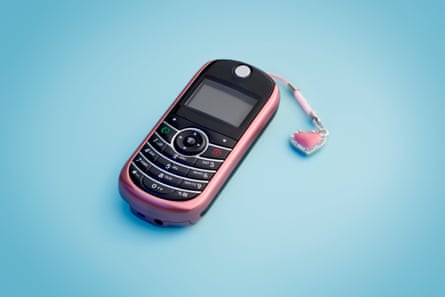
But these movements are far from mainstream. Litherland suspects this is why people find it difficult to understand his choice. He is pleased to have the chance to talk about it, he says, because very few people seem to engage with the idea when he mentions it. Reactions are usually bemused.
Litherland reluctantly bought his first smartphone a year ago. It was a decision he felt forced into: many school social activities are now organised through WhatsApp groups, and he was worried about limiting social opportunities for his child. WhatsApp aside, he has not downloaded any social media apps, but says he does appreciate the camera.
F or those who have already used smartphones, switching back to life without one can prove difficult too. Catherine Webb, 45, has tried several times, using a dumb phone for months at a time. She says she finds it “freeing”.
“In spare moments you can just think, rather than pick up the phone and find out that the world is ending, or that you have a worrying work email, or that someone on the internet is annoyed by an inconsequential thing.”
Although she would like to use a dumb phone permanently, the pandemic-accelerated rise of QR codes, for everything from restaurant menus to mobile ticketing, has made it too impractical.
In an increasingly connected world, Feldman says that giving up your smartphone is often a privilege only afforded to those who don’t rely on one for work. Unlike Cera, Ansari and Gomez, most people do not have agents or assistants to scroll for them. Gig-economy jobs like delivery driving require a smartphone; while the expectation of quick communication in other industries means not having one can severely curtail one’s productivity, and, ultimately, attractiveness to employers.
David Sorauer, a digital marketer from Sydney, finds our addiction to smartphones troubling, particularly the idea that people should always be contactable. Rather than switching handsets, he has used every setting available to dumb down his smartphone. He permanently set his phone to greyscale so the screen is less appealing, uninstalled all social media apps, and hid other time-sucking apps such as email, news and web browsers.
This means he can still use the phone for practical tasks like finding directions, banking and taking photos, but the device is far less tempting for mindless browsing. He says it hasn’t affected his job because he sets clear expectations about when he will be contactable. “Reducing my dependence on constantly being connected” has given him “a feeling of freedom and clarity”.
Even telecommunications companies are onboard with less drastic measures to disconnect. In Australia, Optus has created a ‘pause’ setting that allows users to disconnect their phones and internet for set periods of time. Optus marketing managing director Matt Williams says that pausing peaks from 9pm to 10pm on weekdays, with users averaging 28 hours of ‘pause’ time a month.
Meanwhile, gen Z interest in dumb phones may not be a wholesale rejection of technology either. The 1bn views of ‘flip phone’ videos on TikTok suggest it is as much about the nostalgic (or ironic) trend towards Y2K technology as it is about switching off.
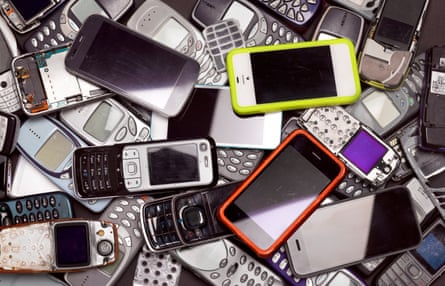
O le Lordieck, who lives in Berlin and works in computer programming, also says ditching a smart device does not have to mean disconnecting entirely. He got his first smartphone in 2018, but the 28-year-old switched back to a dumb phone recently because he found it too distracting.
Although his work is internet-based, he gets by using a laptop to contact team members via Telegram and Slack during the work day.
Lordieck concedes he would return to smartphone usage if it was a requirement “for my dream job”, but he adds: “I would try not to get forced to use a smartphone in my daily life again.”
Lordieck has noticed a social cost: friends contact him less now, and he thinks this might be because his name no longer appears on their list of WhatsApp or Telegram chats.
But Webb believes there’s a social cost to using a smartphone, too. “People … opt out of the reality that’s right in front of them and plunge into their phone reality,” she says. “And I think that’s a really bad option for us to all have in our pockets.”
Research supports Webb’s “phone reality” comment. In 2021, a group of anthropologists from University College London described smartphones as “ a place we live ”, likening usage to a snail withdrawing into its shell.
A University of Melbourne study , carried out during Covid lockdowns, also found that people used smartphones to self-soothe.
“People have figured out how to use them for the purpose of strategically manipulating their own emotions,” says Prof Wally Smith, a researcher in computer-human interaction who worked on the Melbourne study.
However, while traditional forms of emotional regulation, such as listening to music, are typically innocuous, Smith says smartphones can be a volatile resource, causing what the study authors call “disrupted regulation”. Watching a funny video or texting a friend might quell feelings of unhappiness or loneliness, but much of what we see on our phones can provoke the feelings we’re trying to avoid.
“One thing [study respondents] did was go and look up news about the economy or news about the virus as a way to quell their uncertainty,” says Smith. “What they found would often throw up things that were actually more distressing, more disturbing.”
This underscores the reason Litherland avoided smartphones for so long. “There are plenty of other ways to fill your time,” he says. “I’d rather go for walk.”
- Australian lifestyle
- Smartphones
- Mobile phones
- Social media
Comments (…)
Most viewed.
MIT Technology Review
- Newsletters
I asked my students to turn in their cell phones and write about living without them
- Ron Srigley archive page
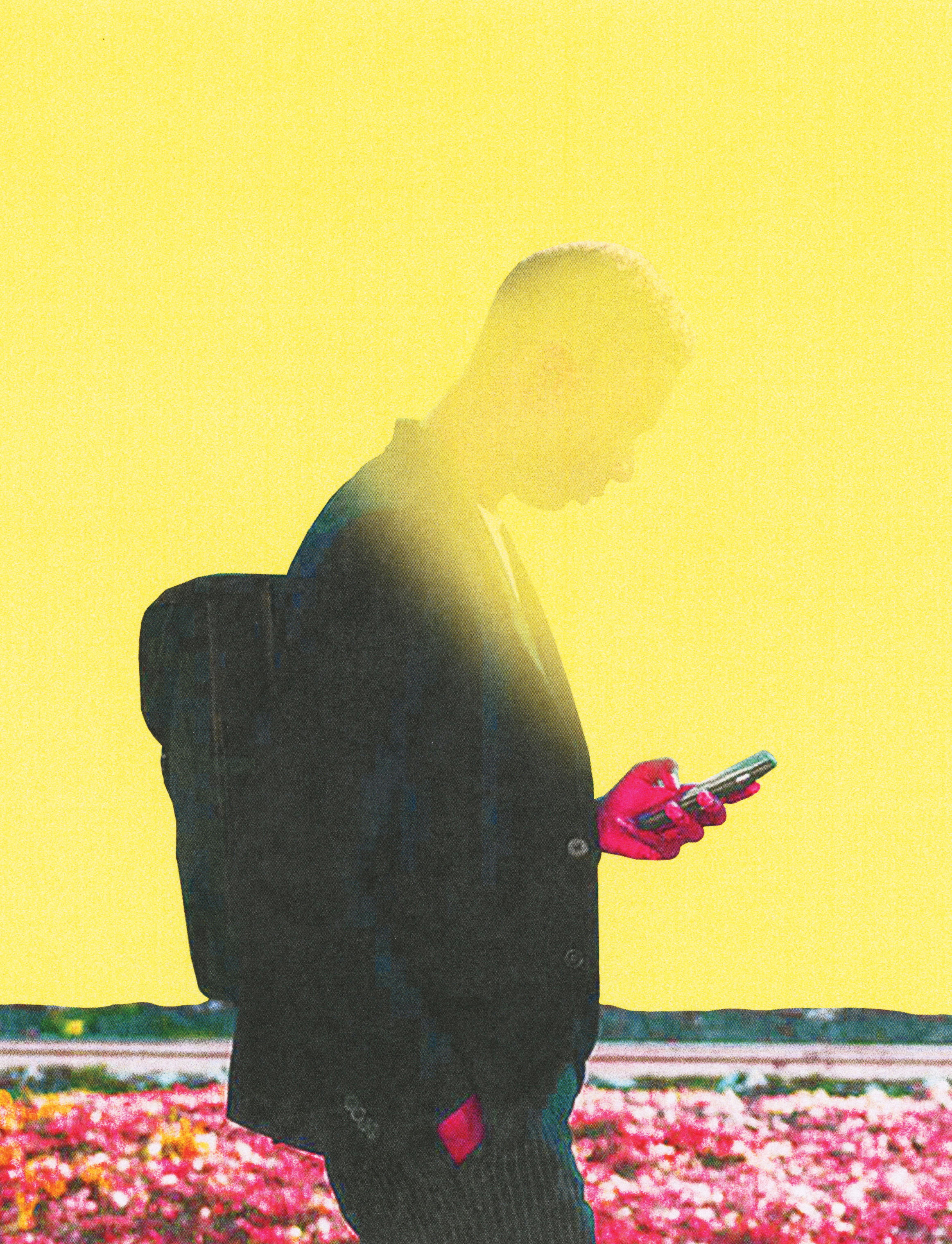
A few years ago, I performed an experiment in a philosophy class I was teaching. My students had failed a midterm test rather badly. I had a hunch that their pervasive use of cell phones and laptops in class was partly responsible. So I asked them what they thought had gone wrong. After a few moments of silence, a young woman put up her hand and said: “We don’t understand what the books say, sir. We don’t understand the words.” I looked around the class and saw guileless heads pensively nodding in agreement.
I extemporized a solution: I offered them extra credit if they would give me their phones for nine days and write about living without them. Twelve students—about a third of the class—took me up on the offer. What they wrote was remarkable, and remarkably consistent. These university students, given the chance to say what they felt, didn’t gracefully submit to the tech industry and its devices.
The usual industry and education narrative about cell phones, social media, and digital technology generally is that they build community, foster communication, and increase efficiency, thus improving our lives. Mark Zuckerberg’s recent reformulation of Facebook’s mission statement is typical: the company aims to “give people the power to build community and bring the world closer together.”
Without their phones, most of my students initially felt lost, disoriented, frustrated, and even frightened. That seemed to support the industry narrative: look how disconnected and lonely you’ll be without our technology. But after just two weeks, the majority began to think that their cell phones were in fact limiting their relationships with other people, compromising their own lives, and somehow cutting them off from the “real” world. Here is some of what they said.

“You must be weird or something”
“Believe it or not, I had to walk up to a stranger and ask what time it was. It honestly took me a lot of guts and confidence to ask someone,” Janet wrote. (Her name, like the others here, is a pseudonym.) She describes the attitude she was up against: “Why do you need to ask me the time? Everyone has a cell phone. You must be weird or something.” Emily went even further. Simply walking by strangers “in the hallway or when I passed them on the street” caused almost all of them to take out a phone “right before I could gain eye contact with them.”
To these young people, direct, unmediated human contact was experienced as ill-mannered at best and strange at worst. James: “One of the worst and most common things people do nowadays is pull out their cell phone and use it while in a face-to-face conversation. This action is very rude and unacceptable, but yet again, I find myself guilty of this sometimes because it is the norm.” Emily noticed that “a lot of people used their cell phones when they felt they were in an awkward situation, for an example [sic] being at a party while no one was speaking to them.”
Without their phones, most of my students initially felt lost, but after just two weeks the majority began to think that their cell phones were in fact limiting their relationships with other people.
The price of this protection from awkward moments is the loss of human relationships, a consequence that almost all the students identified and lamented. Without his phone, James said, he found himself forced to look others in the eye and engage in conversation. Stewart put a moral spin on it. “Being forced to have [real relations with people] obviously made me a better person because each time it happened I learned how to deal with the situation better, other than sticking my face in a phone.” Ten of the 12 students said their phones were compromising their ability to have such relationships.
Virtually all the students admitted that ease of communication was one of the genuine benefits of their phones. However, eight out of 12 said they were genuinely relieved not to have to answer the usual flood of texts and social-media posts. Peter: “I have to admit, it was pretty nice without the phone all week. Didn’t have to hear the fucking thing ring or vibrate once, and didn’t feel bad not answering phone calls because there were none to ignore.”
Indeed, the language they used indicated that they experienced this activity almost as a type of harassment. “It felt so free without one and it was nice knowing no one could bother me when I didn’t want to be bothered,” wrote William. Emily said that she found herself “sleeping more peacefully after the first two nights of attempting to sleep right away when the lights got shut off.” Several students went further and claimed that communication with others was in fact easier and more efficient without their phones. Stewart: “Actually I got things done much quicker without the cell because instead of waiting for a response from someone (that you don’t even know if they read your message or not) you just called them [from a land line], either got an answer or didn’t, and moved on to the next thing.”
Technologists assert that their instruments make us more productive. But for the students, phones had the opposite effect. “Writing a paper and not having a phone boosted productivity at least twice as much,” Elliott claimed. “You are concentrated on one task and not worrying about anything else. Studying for a test was much easier as well because I was not distracted by the phone at all.” Stewart found he could “sit down and actually focus on writing a paper.” He added, “Because I was able to give it 100% of my attention, not only was the final product better than it would have been, I was also able to complete it much quicker.” Even Janet, who missed her phone more than most, admitted, “One positive thing that came out of not having a cell phone was that I found myself more productive and I was more apt to pay attention in class.”
Some students felt not only distracted by their phones, but morally compromised. Kate: “Having a cell phone has actually affected my personal code of morals and this scares me … I regret to admit that I have texted in class this year, something I swore to myself in high school that I would never do … I am disappointed in myself now that I see how much I have come to depend on technology … I start to wonder if it has affected who I am as a person, and then I remember that it already has.” And James, though he says we must continue to develop our technology, said that “what many people forget is that it is vital for us not to lose our fundamental values along the way.”
Other students were worried that their cell-phone addiction was depriving them of a relationship to the world. Listen to James: “It is almost like the earth stood still and I actually looked around and cared about current events ... This experiment has made many things clear to me and one thing is for sure, I am going to cut back the time I am on my cell phone substantially.”

Stewart said he began to see how things “really work” once he was without his phone: “One big thing I picked up on while doing this assignment is how much more engaged I was in the world around me … I noticed that the majority of people were disengaged … There is all this potential for conversation, interaction, and learning from one another but we’re too distracted by the screens … to partake in the real events around us.”
In parentis, loco
Some parents were pleased with their children’s phone-less selves. James said his mother “thought it was great that I did not have my phone because I paid more attention to her while she was talking.” One parent even proposed to join in the experiment.
But for some of the students, phones were a lifeline to their parents. As Karen Fingerman of the University of Texas at Austin wrote in a 2017 article in the journal Innovation in Aging, in the mid to late 20th century, “only half of [American] parents reported contact with a grown child at least once a week.” By contrast, she writes, recent studies find that “nearly all” parents of young adults were in weekly contact with their children, and over half were in daily contact by phone, by text message, or in person.
The city in which these students lived has one of the lowest crime rates in the world and almost no violent crime of any kind, yet they experienced a pervasive, undefined fear.
Emily wrote that without her cell phone, “I felt like I was craving some interaction from a family member. Either to keep my ass in line with the upcoming exams, or to simply let me know someone is supporting me.” Janet admitted, “The most difficult thing was defiantly [sic] not being able to talk to my mom or being able to communicate with anyone on demand or at that present moment. It was extremely stressful for my mom.”
Safety was also a recurrent theme. Janet said, “Having a cell phone makes me feel secure in a way. So having that taken away from me changed my life a little. I was scared that something serious might happen during the week of not having a cell phone.” And she wondered what would have happened “if someone were to attack me or kidnap me or some sort of action along those lines or maybe even if I witnessed a crime take place, or I needed to call an ambulance.”

What’s revealing is that this student and others perceived the world to be a very dangerous place. Cell phones were seen as necessary to combat that danger. The city in which these students lived has one of the lowest crime rates in the world and almost no violent crime of any kind, yet they experienced a pervasive, undefined fear.
Live in fragments no longer
My students’ experience of cell phones and the social-media platforms they support may not be exhaustive, or statistically representative. But it is clear that these gadgets made them feel less alive, less connected to other people and to the world, and less productive. They also made many tasks more difficult and encouraged students to act in ways they considered unworthy of themselves. In other words, phones didn’t help them. They harmed them.
I first carried out this exercise in 2014. I repeated it last year in the bigger, more urban institution where I now teach. The occasion this time wasn’t a failed test; it was my despair over the classroom experience in its entirety. I want to be clear here—this is not personal. I have a real fondness for my students as people. But they’re abysmal students; or rather, they aren’t really students at all, at least not in my class. On any given day, 70% of them are sitting before me shopping, texting, completing assignments, watching videos, or otherwise occupying themselves. Even the “good” students do this. No one’s even trying to conceal the activity, the way students did before. This is just what they do.
In their world I’m the distraction, not their phones or their social-media profiles or their networking. Yet for what I’m supposed to be doing—educating and cultivating young hearts and minds—the consequences are pretty dark.
What’s changed? Most of what they wrote in the assignment echoed the papers I’d received in 2014. The phones were compromising their relationships, cutting them off from real things, and distracting them from more important matters. But there were two notable differences. First, for these students, even the simplest activities—getting on the bus or train, ordering dinner, getting up in the morning, even knowing where they were—required their cell phones. As the phone grew more ubiquitous in their lives, their fear of being without it seemed to grow apace. They were jittery, lost, without them.
This may help to explain the second difference: compared with the first batch, this second group displayed a fatalism about phones. Tina’s concluding remarks described it well: “Without cell phones life would be simple and real but we may not be able to cope with the world and our society. After a few days I felt alright without the phone as I got used to it. But I guess it is only fine if it is for a short period of time. One cannot hope to compete efficiently in life without a convenient source of communication that is our phones.” Compare this admission with the reaction of Peter, who a few months after the course in 2014 tossed his smartphone into a river.
I think my students are being entirely rational when they “distract” themselves in my class with their phones. They understand the world they are being prepared to enter much better than I do. In that world, I’m the distraction, not their phones or their social-media profiles or their networking. Yet for what I’m supposed to be doing—educating and cultivating young hearts and minds—the consequences are pretty dark.
Paula was about 28, a little older than most students in the class. She’d returned to college with a real desire to learn after working for almost a decade following high school. I’ll never forget the morning she gave a presentation to a class that was even more alternatively engaged than usual. After it was all over, she looked at me in despair and said, simply: “How in the world do you do this?”
Humans and technology
Unlocking the power of sustainability.
A comprehensive sustainability effort embraces technology, shifting from risk reduction to innovation opportunity.
- MIT Technology Review Insights archive page
Building a more reliable supply chain
Rapidly advancing technologies are building the modern supply chain, making transparent, collaborative, and data-driven systems a reality.
Backed by heritage, ready for the future
Building a data-driven health-care ecosystem.
Harnessing data to improve the equity, affordability, and quality of the health care system.
Stay connected
Get the latest updates from mit technology review.
Discover special offers, top stories, upcoming events, and more.
Thank you for submitting your email!
It looks like something went wrong.
We’re having trouble saving your preferences. Try refreshing this page and updating them one more time. If you continue to get this message, reach out to us at [email protected] with a list of newsletters you’d like to receive.
- Share full article
Advertisement
Supported by
Life With, and Without, a Smartphone
Readers share their preferences. Believe it or not, say some, you can more than get by.

To the Editor:
According to the statistic cited in Paul Greenberg’s “ In Search of Lost Screen Time ” (Op-Ed, Jan. 1), I am among the under 25 percent of Americans who don’t own or use a smartphone. According to friends and colleagues who can’t understand how I’ve made it into the 21st century without one, that fact qualifies me for a place in “Ripley’s Believe It or Not.”
When I started my business in 1996 and announced to my new clients that they would never be able to reach me by cellphone, many of them were horrified and wondered how I could ever possibly conduct business. Or what would happen, say, if a friend was delayed for our lunch date and absolutely had to get in touch to let me know that she’d be seven minutes late. I am glad to report that it has all worked out.
I have found being smartphone-less delightfully freeing and not remotely a hardship (although I admit that it must be nice to have access to Uber on a rainy night). Otherwise, I can happily say — as suggested in Mr. Greenberg’s article — that I have the time to exercise and read books every day and I save lots of money.
And while my honey and I don’t make love 16,000 times a year (per Mr. Greenberg’s calculation), I suppose that I would have to blame his smartphone for pulling down our stats.
Linda Konner New York To the Editor:
Paul Greenberg's analysis regarding screen time is at best incomplete. For one thing, some smartphones are used during the idle moments of commuting and the like, when alternatives are limited. (In my experience, amorous activity — to name one of Mr. Greenberg's suggestions — is not feasible on the A train during rush hour.)
Also, some of us need a smartphone for work and must own a device, however infrequently we use it. So limiting screen time does not necessarily liberate the funds to plant even a single tree, to say nothing of half an acre of them.
Joseph Bernstein Haverford, Pa.
I’m an 18-year-old high school senior writing to you from my smartphone, while eating breakfast on my vacation in Jaipur, India. Without my device, I could not have read Paul Greenberg’s insights, nor could I have sent you this letter.
To stay motivated in my busy life, I rely on my smartphone to deliver the daily news, even when I’m halfway across the world. I’m now going to email my congressman on my smartphone, in response to the morning briefing on the government shutdown delivered to me via smartphone. After that, I’m going to put down my phone, make the trip to the Taj Mahal and enjoy the sight without distraction.
Thank you, smartphone!
Brian Silverstein Jaipur, India
Thanks to Paul Greenberg for providing suggestions to support the New Year’s resolution many of us doubtless made: to reduce screen time and renew connections to the physical world. Simple pleasures, rich rewards.
I like to think of my day in terms of digital hours and analog hours. Usually, it’s the analog hours that bring more fulfillment. For those of us who prefer a less ambitious goal than those Mr. Greenberg lays out, perhaps starting with analog minutes is a good idea. My day begins each morning with a few analog minutes enjoying the rustling of the newspaper above a steaming cup of coffee.
Ralph Walsh Chicago
Life without smartphones | Benefits of living without smartphones

Nowadays, no one can imagine life without a smartphone and the Internet. The phone consumes so much of our concentration and attention that we forget about others. We forget to connect with those around us, because we are staring at a screen in front of our face. Your smartphone is everywhere and if you turn it off or leave it at home for a while, it can feel like a part of us is missing.
There are numerous advantages to not having a smartphone. Smartphones expand our knowledge and keep us connected to the people, systems, and services on which we rely. In the US, dumb phones range in price from $30 to $100 and last two to three times as long as smartphones.
What materials are cell phones made of?
Benefits of living without a smartphone
The first thing that comes to mind when thinking about the benefits of living without smartphones is having more time for family and friends. You can spend more time outdoors, enjoying nature or taking a walk in your neighborhood. Instead of being glued to your phone, you can engage with others around you. This will help you build relationships with people who are important to you and make new friends as well.
Do smart phones help or hurt productivity?
You’ll also have more time for yourself because there won’t be any distractions from social media and games on your phone. If you want some entertainment while waiting at the doctor’s office or sitting in traffic, then by all means use your smartphone! But if it makes sense to leave it behind, then do so!
Another benefit is not being distracted by technology while driving a car or using other forms of transportation such as buses and trains. The last thing that we need is another distraction while trying to drive safely down the road! So if this sounds like something that might work for you, then give it a try! It could be an amazing experience for both yourself and those around you!
What will be affected by the 2038 problem?
What is life without mobile phones?
I think I can live well without a smartphone. It was done in the seventies, eighties and nineties, and people lived well. Get a landline so you can call home. If you want to call someone or want them to call you, get a cheap push-button phone to keep in your car, but give them your home phone number. For GPS, you can buy a GPS device as accurate as your phone and get where you want to go, or learn how to read a real map.
I find that turning off electronics at night is very beneficial. Even though not everyone had mobile phones when I was in high school, those who did were unable to put them down. People were constantly texting, making calls, and later, using newer models of those same phones to browse the internet.
Vintage Phones – I Miss Them!
I miss the old phones. I don’t use my smartphone much – photos, work email, but FB is so boring. Not to mention the industry has gotten so ridiculous that they don’t even have removable batteries anymore.
- X (Twitter)
Leave a Reply Cancel reply
Type above and press Enter to search. Press Esc to cancel.
Discover more from Curiosity Guide
Subscribe now to keep reading and get access to the full archive.
Type your email…
Continue reading
How To Live Without A Smartphone

- How-To Guides
- Tech Setup & Troubleshooting

Introduction
Living without a smartphone may seem like a daunting idea in today’s hyper-connected world. Our smartphones have become an integral part of our daily lives, serving as a communication tool, a source of information and entertainment, and even a personal assistant. However, there are numerous reasons why someone might choose to live without a smartphone. Whether it’s to disconnect from the constant digital noise, improve productivity, or prioritize mental well-being, going smartphone-free is a journey that requires careful planning and adjustment.
In this article, we will explore the challenges and benefits of living without a smartphone, as well as provide practical tips and alternative solutions to help you navigate this smartphone-free lifestyle. From finding alternative means of communication to managing daily tasks and responsibilities, we will cover various aspects of life without a smartphone and offer insights for smoother transition.
Living without a smartphone doesn’t mean completely cutting off from the digital world; instead, it encourages us to rethink our dependence on technology and embrace healthier alternatives. While it may seem difficult at first, the rewards can be significant, including increased mindfulness, enhanced social connections, and a better sense of overall well-being.
So, if you’ve ever contemplated the idea of living without a smartphone, or simply want to reduce your screen time and regain control over your digital life, read on. In the following sections, we will explore practical strategies and tips to help you navigate this smartphone-free journey while staying connected and engaged in the world around you.
Finding Alternative Communication Methods
While smartphones have revolutionized the way we communicate, there are still plenty of alternative methods to stay connected without relying on a smartphone. Here are a few options to consider:
- Basic Mobile Phone: Ditching the smartphone doesn’t mean getting rid of all forms of communication. You can opt for a basic mobile phone that allows you to make calls and send text messages. These phones are typically cheaper and have longer battery life, making them ideal for simple communication needs.
- Landline Phones: If you spend most of your time at home or in the office, a landline phone can be a reliable alternative. Landline phones offer clear calls and are not dependent on cellular coverage. Additionally, they can be more suitable for individuals who struggle with small touch screens or prefer the feel and ease of use of a traditional phone.
- Email and Instant Messaging: In a digital world, email and instant messaging remain popular communication methods. Email allows for more formal and detailed conversations, while instant messaging platforms offer real-time communication. Utilizing these platforms on a computer or tablet can help you stay connected without relying on a smartphone.
- Video Calls: When face-to-face interaction is essential, video calls are an excellent option. Platforms like Skype, Zoom, and FaceTime enable you to have meaningful conversations with friends, family, and colleagues, even without a smartphone. All you need is a computer, tablet, or webcam-enabled device.
- Social Media on a Computer: While social media apps are commonly accessed through smartphones, you can still stay connected through a computer or tablet. Most social media platforms have web versions that provide the same functionalities, allowing you to share updates, communicate, and engage with others without the need for a smartphone.
- Alternative Messaging Apps: If you prefer the convenience of messaging apps but want to avoid using a smartphone, various messaging apps are available for computers and tablets. Apps like WhatsApp and Telegram have desktop versions that sync with your phone contacts, allowing you to chat and share media seamlessly.
By exploring these alternative communication methods, you can stay connected and maintain meaningful relationships without relying on a smartphone. Remember, the goal is to find what works best for you and your communication needs, allowing you to adapt to a smartphone-free lifestyle more easily.
Finding Alternative Sources of Information and Entertainment
Smartphones have become our go-to device for staying informed and entertained. However, living without a smartphone doesn’t mean missing out on the latest news or enjoyable content. Here are some alternative sources to consider:
- Newspapers and Magazines: Traditional print media like newspapers and magazines offer in-depth reporting, feature articles, and opinion pieces. Subscribing to a print publication can provide a tangible and immersive reading experience that allows you to stay informed without relying on digital platforms.
- Books: Books are a great way to expand your knowledge and enter different worlds. Whether you prefer physical books or e-readers, they offer a wide range of genres and subjects for your reading pleasure. Visiting local libraries or bookstores can enhance the experience by connecting you with like-minded individuals and creating a sense of community.
- Radio and Podcasts: Tune in to radio stations or explore the vast world of podcasts for informative and entertaining content. Radio provides up-to-date news, music, and talk shows, while podcasts offer a wide array of topics and discussions to suit your interests. Both options can be enjoyed through traditional radios, smart speakers, or computer and tablet apps.
- Television and Streaming Services: Traditional television channels and online streaming services offer a wealth of TV shows, movies, documentaries, and news programs. Watching your favorite shows on a television or computer screen allows you to disconnect from the smartphone world while still enjoying quality content.
- Traditional Games and Hobbies: Engage in traditional games and hobbies that don’t require a smartphone. Board games, card games, puzzles, crafting, and sports are excellent ways to entertain yourself and spend quality time with others. These activities promote face-to-face interactions and help to foster meaningful connections.
- Art and Cultural Events: Explore local art galleries, museums, theaters, and cultural events. These venues often provide thought-provoking exhibitions, performances, and workshops that stimulate your mind and creativity. Immerse yourself in the beauty of art, music, dance, and theater in a smartphone-free environment.
By diversifying your sources of information and entertainment, you can lead a fulfilling and enriching life without relying solely on a smartphone. Embrace the opportunities offered by traditional media, hobbies, and cultural experiences to broaden your horizons and embrace a more balanced approach to staying informed and entertained.
Managing Daily Tasks and Responsibilities Without a Smartphone
A smartphone often serves as a personal assistant, helping us manage our daily tasks and responsibilities. However, it’s possible to effectively handle our obligations without relying on a smartphone. Here are some strategies to consider:
- Paper Planners and Calendars: Utilize traditional paper planners and calendars to organize your schedule, appointments, and deadlines. Write down your to-do lists, set reminders, and track your progress manually. This tactile approach can provide a sense of satisfaction and help you stay organized without the distractions of smartphone notifications.
- Alarm Clocks and Timers: Replace relying on your smartphone as an alarm clock with a dedicated alarm clock or a stand-alone timer. By keeping your smartphone out of the bedroom, you can establish healthier sleep habits and reduce the temptations of late-night scrolling.
- Notes and Sticky Pads: Instead of typing notes into smartphone apps, use traditional pen and paper or sticky pads to jot down important information, reminders, and ideas. Having physical notes can be more memorable and provide a visual reminder to keep you on track.
- Task and Project Management Tools: Explore computer-based or web-based task and project management tools. Platforms like Trello, Asana, or Microsoft To-Do can help you create and track tasks, set deadlines, and collaborate with others. These tools offer a more focused and organized approach to managing your responsibilities.
- Offline Tools and Utilities: Many digital tools and utilities have offline versions or equivalents that can be accessed through a computer or tablet. For example, offline document editors, photo editors, and file management systems allow you to handle various tasks without relying on a smartphone.
- Physical Contacts and Address Books: Maintain a physical address book or contacts list to store important phone numbers and addresses. By having them readily available in a physical format, you can quickly access the information you need without relying on smartphone contact apps.
By adopting these strategies, you can effectively manage your daily tasks and responsibilities without the constant presence and distractions of a smartphone. Embrace the simplicity of offline tools and the intentionality of physical planning to create a more focused and productive approach to your daily life.
Overcoming the Fear of Missing Out (FOMO)
One of the biggest challenges of living without a smartphone is overcoming the fear of missing out, commonly known as FOMO. With smartphones providing constant access to social media, news, and updates, it’s natural to worry about being disconnected from the digital world. However, there are strategies to overcome this fear and embrace the benefits of a smartphone-free lifestyle:
- Focus on the Present: Shift your mindset from constantly seeking external validation and updates to being fully present in the moment. Engage in activities that bring you joy, spend quality time with loved ones, and immerse yourself in the things that truly matter to you. By cultivating a sense of fulfillment and contentment within yourself, you can reduce the fear of missing out on digital updates.
- Practice Mindfulness: Engage in mindfulness practices to cultivate awareness and acceptance of the present moment. Mindfulness helps you become more attuned to your thoughts and emotions, allowing you to better understand and manage FOMO triggers. By staying grounded and focusing on the here and now, you can reduce the anxiety associated with the fear of missing out.
- Curate Your Digital Intake: Be intentional about the digital content you consume. Instead of mindlessly scrolling through social media feeds, selectively follow accounts and platforms that align with your values, interests, and goals. This way, you can curate a content feed that brings you meaningful and relevant updates, reducing the fear of missing out on irrelevant or unnecessary information.
- Cultivate Offline Connections: Nurture and strengthen your offline relationships. Focus on building deeper connections with friends, family, and your community. Engage in face-to-face conversations, meaningful interactions, and shared experiences. By investing in real-world connections, you will realize that the richness of offline interactions far surpasses the superficiality of digital updates.
- Embrace the Joy of JOMO: Shift your perspective from FOMO (Fear of Missing Out) to JOMO (Joy of Missing Out). Recognize that by disconnecting from the constant digital noise, you gain the freedom to focus on your own priorities, passions, and personal growth. Embrace the joy of missing out on trivial updates and embrace a more purposeful and fulfilling life offline.
Overcoming the fear of missing out is a gradual process that requires self-reflection, awareness, and intentional choices. By implementing these strategies and shifting your mindset, you can break free from the grip of FOMO and embrace the advantages of living a smartphone-free life.
Creating Healthier Boundaries and Reducing Screen Time
Living without a smartphone provides an opportunity to create healthier boundaries and reduce screen time. Here are some strategies to help you achieve a more balanced relationship with technology:
- Set Clear Boundaries: Establish specific boundaries for your smartphone usage. Define designated times for checking emails, social media, and other digital activities. By setting limits, you can regain control over your time and reduce mindless scrolling.
- Practice Digital Detox: Set aside regular periods of designated “digital detox” time. Completely disconnect from electronic devices during these periods, allowing yourself to recharge, focus on other activities, and be fully present in the moment.
- Designate Phone-Free Spaces: Create specific areas or situations where smartphones are not allowed. For example, designate meal times, bedrooms, or social gatherings as phone-free zones to foster more meaningful connections and reduce distractions.
- Use Digital Well-being Tools: Many smartphones and operating systems offer built-in digital well-being tools that enable you to set time limits for specific apps or track your screen time. Utilize these tools to monitor your digital habits and make conscious choices to reduce excessive screen time.
- Engage in Offline Activities: Make a conscious effort to engage in offline activities that bring you joy and fulfillment. Pursue hobbies, exercise, spend time in nature, or engage in social interactions without the presence of a smartphone. By immersing yourself in the present moment, you can reduce the temptation to constantly be connected.
- Use Alternative Devices: If completely eliminating a smartphone is not feasible, consider using alternative devices to fulfill essential tasks. For example, use a computer or tablet for internet browsing, email, and other necessary online activities, while keeping a basic mobile phone for communication purposes only.
- Practice Mindful Technology Usage: Develop mindful habits when using technology. Before reaching for your device, pause and ask yourself if it is necessary or if there are alternative solutions. Consider whether the activity aligns with your values and contributes positively to your well-being.
By implementing these strategies, you can create healthier boundaries with technology and reduce screen time. Remember, the goal is not to completely eliminate technology from your life, but rather to develop a more intentional and balanced relationship with it.
Maintaining Digital Detox and Self-Care Practices
Living without a smartphone provides an opportunity to prioritize self-care and establish regular digital detox practices. Here are some strategies to help you maintain a healthy balance between your digital life and self-care:
- Schedule Regular Detox Periods: Plan regular digital detox periods where you intentionally disconnect from electronic devices. Use this time to engage in self-care activities such as meditation, journaling, reading, or pursuing hobbies that bring you joy and relaxation.
- Practice Mindful Awareness: Cultivate mindfulness in your digital interactions. Before engaging in online activities, check-in with yourself and assess how it aligns with your well-being. Be aware of any negative emotions or triggers and make conscious choices to prioritize self-care over mindless scrolling.
- Engage in Physical Activities: Dedicate time to physical activities that promote well-being. Exercise, yoga, and outdoor activities provide an opportunity to disconnect from the digital world, reduce stress, and improve overall health and vitality.
- Establish a Sleep Routine: Prioritize quality sleep by establishing a consistent sleep routine. Create a technology-free zone in your bedroom and avoid using electronic devices before bed. Instead, engage in relaxing activities like reading a book, taking a warm bath, or practicing calming rituals to promote restful sleep.
- Connect with Nature: Spend time connecting with nature to rejuvenate your mind and nurture your soul. Engaging in activities such as hiking, gardening, or simply taking a walk in the park can provide a sense of peace, reduce stress, and promote overall well-being.
- Cultivate Mindful Eating Habits: Practice mindful eating by focusing on nourishing your body and being present in the moment while enjoying your meals. Avoid engaging in digital distractions during meal times, allowing you to fully savor the experience and listen to your body’s hunger and fullness cues.
- Engage in Creative Outlets: Explore your creative side through artistic pursuits such as painting, writing, or playing a musical instrument. Creating something with your hands allows you to immerse yourself in the present moment, express your emotions, and find joy in the process.
By incorporating these self-care practices and maintaining regular digital detox periods, you can nurture your overall well-being and cultivate a healthier relationship with technology. Remember to prioritize self-care and make conscious choices that support your mental, emotional, and physical health.
Living without a smartphone may seem like a daunting prospect in a world that’s heavily reliant on technology. However, it’s important to recognize the numerous benefits and possibilities that come with disconnecting from constant digital connectivity. By finding alternative communication methods, exploring traditional sources of information and entertainment, and effectively managing daily tasks, you can navigate through a smartphone-free lifestyle with ease.
Overcoming the fear of missing out (FOMO) requires a shift in mindset and a focus on being present in the moment. By curating your digital intake, cultivating offline connections, and embracing the joy of missing out (JOMO), you can find fulfillment and meaningful experiences outside of the smartphone bubble.
Creating healthier boundaries and reducing screen time allows you to regain control over your relationship with technology. By setting clear boundaries, practicing digital detox, and engaging in offline activities, you can create a more balanced and intentional approach to your digital life.
Maintaining a digital detox and prioritizing self-care is essential for overall well-being. By scheduling regular detox periods, practicing mindful awareness, engaging in physical activities, and embracing creative outlets, you can nourish your mind, body, and soul.
Living without a smartphone is a personal choice that requires adaptation and adjustment. It’s an opportunity to rediscover the joys of face-to-face interactions, engage in offline experiences, and prioritize what truly matters in life. By embracing alternative ways of communication, seeking out traditional sources of information and entertainment, and taking care of your well-being, you can thrive in a smartphone-free lifestyle and find a deeper connection with yourself and the world around you.
Leave a Reply Cancel reply
Your email address will not be published. Required fields are marked *
Save my name, email, and website in this browser for the next time I comment.
- Crowdfunding
- Cryptocurrency
- Digital Banking
- Digital Payments
- Investments
- Console Gaming
- Mobile Gaming
- VR/AR Gaming
- Gadget Usage
- Gaming Tips
- Online Safety
- Software Tutorials
- Tech Setup & Troubleshooting
- Buyer’s Guides
- Comparative Analysis
- Gadget Reviews
- Service Reviews
- Software Reviews
- Mobile Devices
- PCs & Laptops
- Smart Home Gadgets
- Content Creation Tools
- Digital Photography
- Video & Music Streaming
- Online Security
- Online Services
- Web Hosting
- WiFi & Ethernet
- Browsers & Extensions
- Communication Platforms
- Operating Systems
- Productivity Tools
- AI & Machine Learning
- Cybersecurity
- Emerging Tech
- IoT & Smart Devices
- Virtual & Augmented Reality
- Latest News
- AI Developments
- Fintech Updates
- Gaming News
- New Product Launches
New Step by Step Roadmap for Marijuana News
- How to Find the Best Midjourney Alternative in 2024 A Guide to AI Anime Generators
Related Post
Unleashing young geniuses: how lingokids makes learning a blast, 10 best ai math solvers for instant homework solutions, 10 best ai homework helper tools to get instant homework help, 10 best ai humanizers to humanize ai text with ease, sla network: benefits, advantages, satisfaction of both parties to the contract, what are the most common challenges in ai development, related posts.

Why You Don’t Need A Smartphone
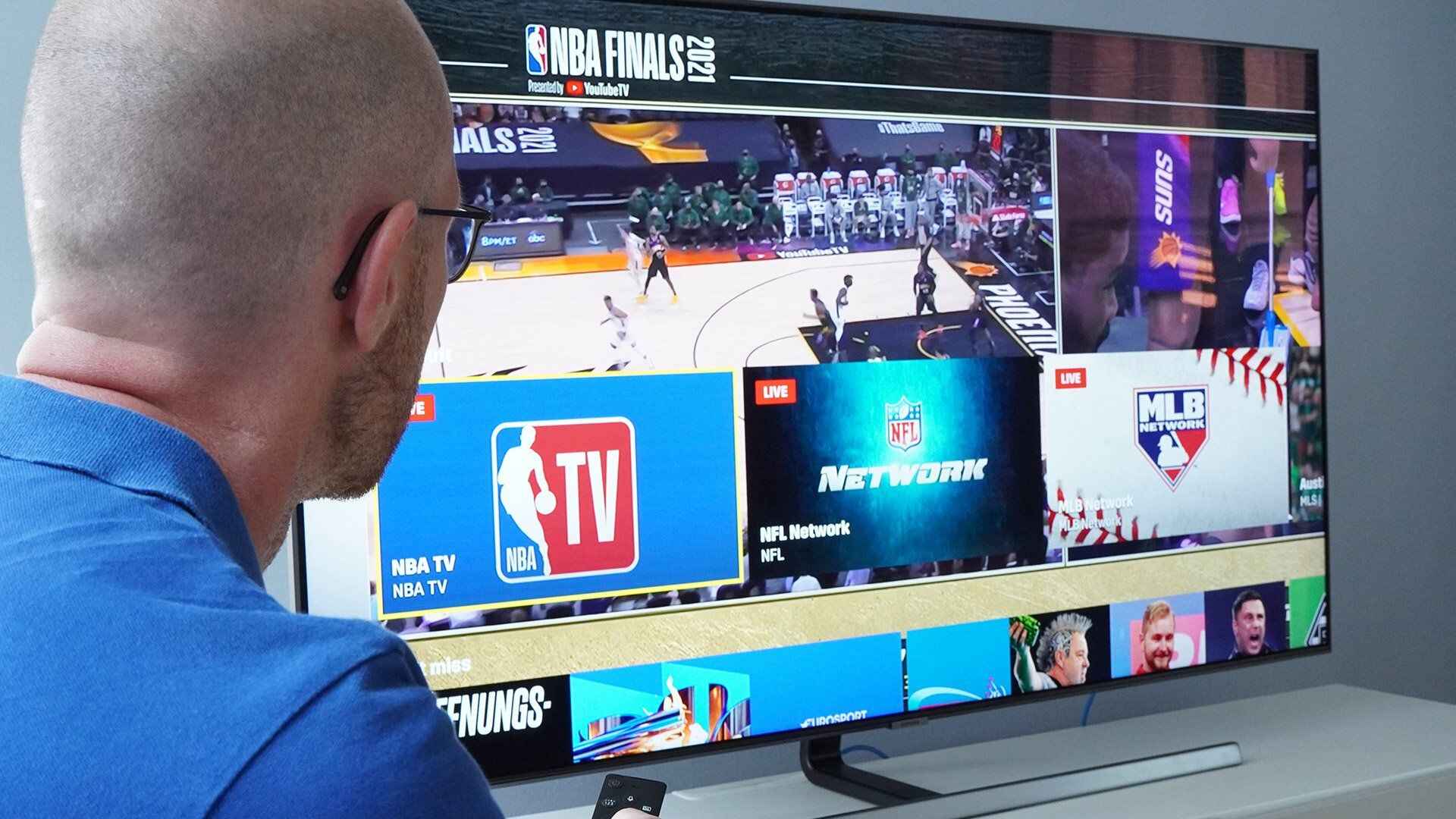
How To Watch Nba On Samsung Smart TV
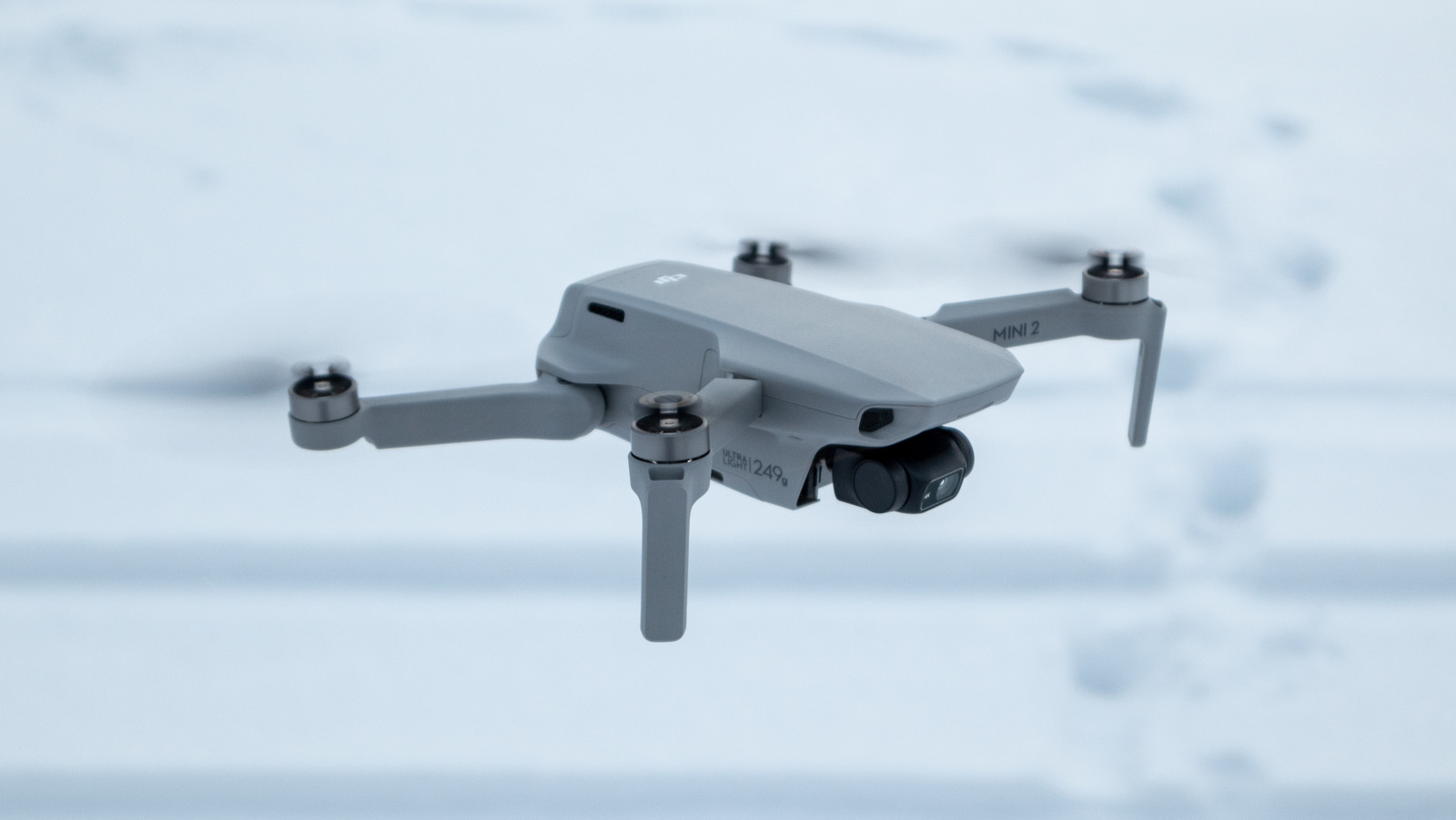
How To View Through Camera Drone Without Wi-Fi
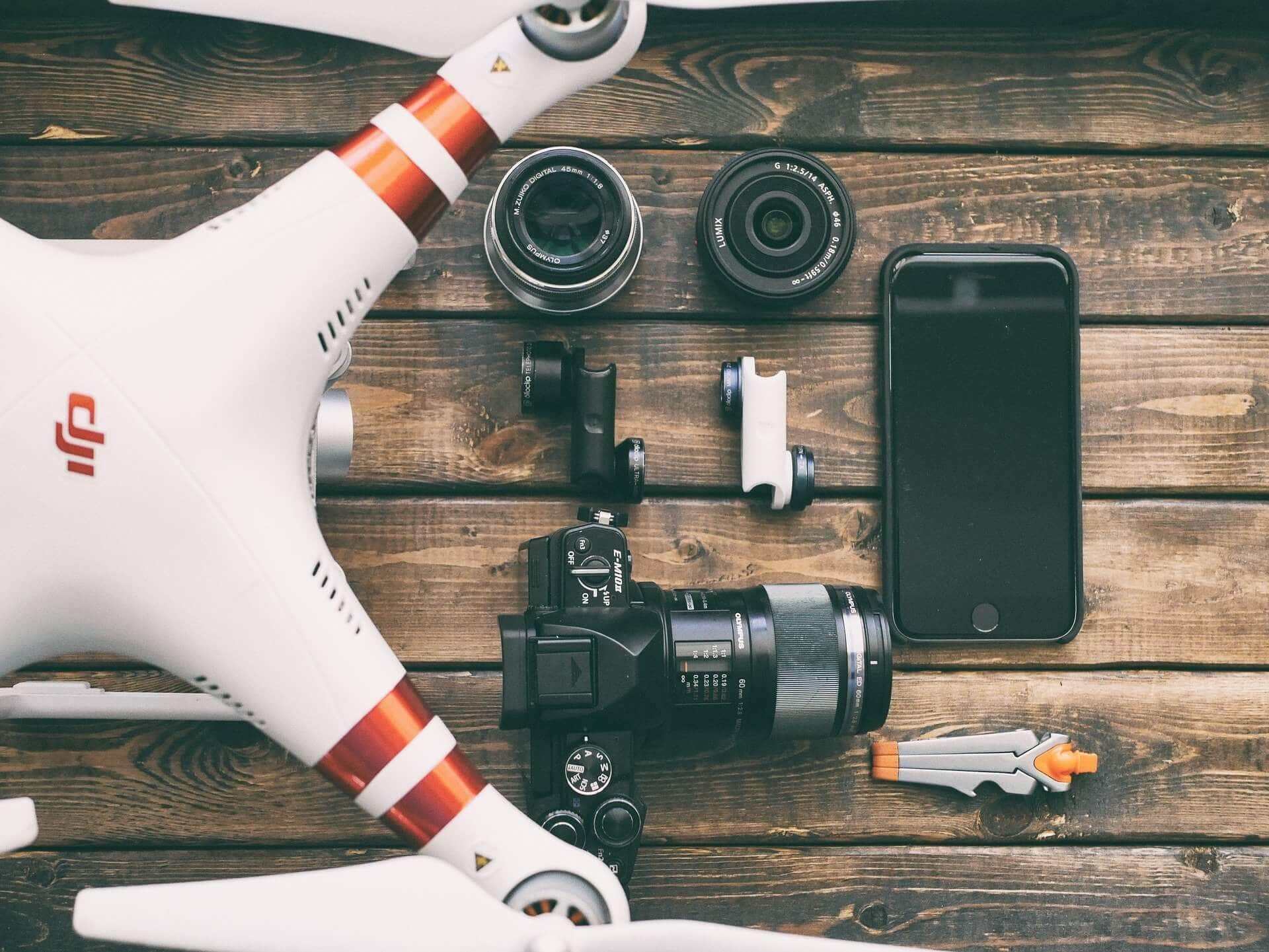
What Are Some Benefits Of Drones And Smartphone Cameras?

Differentiating Xiaomi And Redmi: A Comprehensive Guide

How To Watch Local Channels Without Cable

Why Smartphone Is Important

Which Of The Following IoT Devices Would Most Commonly Be Associated With Ip Cameras?
Recent stories.

How to Find the Best Midjourney Alternative in 2024: A Guide to AI Anime Generators

How to Know When it’s the Right Time to Buy Bitcoin

How to Sell Counter-Strike 2 Skins Instantly? A Comprehensive Guide

10 Proven Ways For Online Gamers To Avoid Cyber Attacks And Scams

- Privacy Overview
- Strictly Necessary Cookies
This website uses cookies so that we can provide you with the best user experience possible. Cookie information is stored in your browser and performs functions such as recognising you when you return to our website and helping our team to understand which sections of the website you find most interesting and useful.
Strictly Necessary Cookie should be enabled at all times so that we can save your preferences for cookie settings.
If you disable this cookie, we will not be able to save your preferences. This means that every time you visit this website you will need to enable or disable cookies again.
- Data, AI, & Machine Learning
- Managing Technology
- Social Responsibility
- Workplace, Teams, & Culture
- AI & Machine Learning
- Diversity & Inclusion
- Big ideas Research Projects
- Artificial Intelligence and Business Strategy
- Responsible AI
- Future of the Workforce
- Future of Leadership
- All Research Projects
- AI in Action
- Most Popular
- The Truth Behind the Nursing Crisis
- Work/23: The Big Shift
- Coaching for the Future-Forward Leader
- Measuring Culture

The spring 2024 issue’s special report looks at how to take advantage of market opportunities in the digital space, and provides advice on building culture and friendships at work; maximizing the benefits of LLMs, corporate venture capital initiatives, and innovation contests; and scaling automation and digital health platform.
- Past Issues
- Upcoming Events
- Video Archive
- Me, Myself, and AI
- Three Big Points

Surviving a Day Without Smartphones
For young adults accustomed to continually checking their cellphones, even a single day without access to them can be anxiety-producing. What are the implications for executives about managing this constantly connected generation?
- Managing Your Career
- Talent Management
- Work-Life Balance

In contemporary society, many people, particularly those under the age of 30, rely on their smartphones for a variety of important activities, including waking up in the morning, listening to music, following the news, finding bus schedules, and communicating with friends and family. A 2015 survey by the Pew Research Center found that 15% of Americans between ages 18 and 29 were “heavily dependent” on their smartphones for online access. There is no question that smartphones make our lives easier and more connected. But at what cost? Several studies have warned that excessive phone use can affect cognitive abilities, sleep, the quality of social interactions, and the ability to engage at work.
Based on the behavior we observed in our classrooms and the extent to which technology is infiltrating young people’s lives, we discussed what we could do to make our students more conscious of the costs associated with unrestrained use of mobile phones and other internet-connected devices. After reading about various ideas for curbing dependency on phones and devices, we decided to initiate a one-day project in which graduate students in our organizational behavior and leadership courses at the University of Bologna in Italy and the Bordeaux, France, campus of Kedge Business School would be asked to suspend all connectivity and keep a journal about their experience. This article is based on the experiences of 153 graduate students who participated in this project between 2015 and 2017.
Students reacted to the idea with a mix of incredulity and skepticism, although these reactions were often followed by a feeling of excitement. Some students, particularly foreign students, pushed back, citing concerns that family members or partners would worry if they were unreachable. In such cases, we suggested that students inform their families in advance and share the contact information of a friend or professor in case of emergency. A number of students questioned the very notion that they were in any way addicted to their devices. However, we ultimately decided to make participation in the project a requirement for our courses, and we advised students to inform their families that they would be out of touch.
Anticipating the Challenge
For a number of students, the days leading up to the challenge were both busy and stressful. Individual students were allowed to choose the day they would be off-line and away from their phone, and many were careful about how they prepared. In addition to notifying their friends and family, some students elected to announce their upcoming technology hiatus more publicly, by posting about it on social media. Many students anticipated some of the challenges they would face by printing bus schedules, driving directions, and other materials they usually accessed in real time from their devices. They consulted with friends and roommates on how to handle mundane tasks such as how to wake up in the morning without using their phone alarm.
Students were expected to keep track of the experience for a paper that would count for 30% of their final grade for the course. In the paper, they were to discuss how they prepared for the experiment, how they spent their time off-line, how the experience affected them emotionally, and what they learned about disconnecting from technology for one entire day.
Get Updates on Innovative Strategy
The latest insights on strategy and execution in the workplace, delivered to your inbox once a month.
Please enter a valid email address
Thank you for signing up
Privacy Policy
How They Spent Their Time
Many students noted that the unplugged day seemed longer than a typical day. Some saw this as a good thing as it allowed them to complete projects they had postponed for weeks. A German student said that, despite waking up later than usual (because he didn’t have an alarm), he had more time to read, exercise, and prepare a special meal.
For other students, having more time in the day was viewed as a negative, leaving them with gaps some admitted they didn’t know how to fill. “[Without the smartphone] my breakfast was too short and I did not know what to do next,” one student noted. Another wrote about his frustration at not being able to look at his phone during bus and train rides; he called it “the longest time of my life.” Not having a phone to look at made some students feel exposed. As one put it, “I was feeling uncomfortable, with no possibility to hide behind the phone screen.” One French student wrote, “I was not capable of doing nothing. I was thinking about my phone all the time.” To minimize their discomfort, a number of students elected to do the experiment on a day they knew would be busy. “In this way,” wrote a student from the United States, “I will be distracted and not think about my phone.”
Many students made a determined effort to approach the project as a learning opportunity. A few noted that it was a way to experience what life was like before the rise of mobile devices (or as one put it, to see “how my parents communicated when they were my age”). They reported spending time visiting new areas of the city (“I had been living in the city for six months, and there were still many places I did not know, so that was a fantastic day for me”). “I walked around for a couple of hours,” one student offered, “and it was so relaxing.”
Many participants said the experiment provided time to reflect on how technologies were shaping their lives and social interactions. Several said they experienced more meaningful conversations, which caused them to feel “closer and more connected” to their friends. One student wrote, “My friend and I had dinner in the evening, and we both remarked on how much more present we felt — how we could really hear what each other was saying.”
How They Felt
During the unplugged day, students experienced a mix of emotions. For many, the strongest feeling was anxiety. Students felt anxious about missing something important: What if their parents needed them? What if a dream employer was trying to contact them with a job offer? How would they catch up with all the social media updates they were missing? In anticipation of the experiment, some students reported that they had difficulty sleeping. In order to calm themselves, a few students said they used their smartphones as much as they could until the experiment began. (One wrote, “I spent [the] last minutes checking every communication and my social media apps.”)
A common sentiment was that the phone provided “a sense of safety.” Even when it was turned off, some students said they carried their phone with them in airplane mode just in case there was an emergency. Many noted that they felt the greatest amount of anxiety in the afternoon, when they hadn’t received a call for several hours. One Italian student wrote of her fears about losing contact with people and being excluded: “I am not receiving messages, photos, emails, likes, comments, etc. It feels as if no one is willing to interact with me, thinking about me! I am alone!!”
Students also expressed feelings of guilt at not being able to respond to messages received in their class chats. They were concerned that they were hurting their classmates’ ability to complete class assignments and worried about the repercussions their disconnection might have on their reputations and social life. A Russian woman studying at Bologna wrote, “Remaining silent for more than three hours is considered abnormal, requiring explanation later. Being fast in responses is a must that is needed in order to be part of social life.” When the 24-hour period was over, many students expressed relief. (As one student wrote, “Thankfully this challenge lasted only one day.”) Some of them even decided to insert screen shots in their papers documenting the number of missed messages, emails, and social media notifications.
What They Learned
Many students came to see that technology has pluses and minuses. Most of them concluded that technology was essential and that living without a mobile phone “would be impossible.” For example, they acknowledged that connectivity technologies had improved their lives and enabled opportunities (such as the ability to interact with people in other parts of the world) that were once more difficult to access. However, living unplugged — even for a single day — led many to see that control and moderation were important. As one male student from Turkey wrote, “I appreciate technology and the convenience it [brings] to our lives. However, too much technology can be detrimental.”
Students developed greater awareness about their own connectivity habits. As a Spanish student at Bologna noted, the experiment “was a surprising and revealing exercise that made [me] aware that [my] day starts and ends with a smartphone in my hands.” Even students who didn’t consider themselves overly reliant on their devices realized how dependent they were for simple things such as finding a recipe or setting a timer for cooking. Students also developed a greater awareness of the extent to which they were influenced by their peers. As one student wrote, “Since everybody is on the smartphone, I also do it.”
Finally, some students said that by observing other people in cafés or on trains who were totally immersed in their phones, they became more conscious of the fact that using phones in front of other people can be seen as disrespectful. One student wrote, “My friend checked his phone four times during our 10-minute encounter!! This made me realize how superficial some of our contemporary relationships are becoming.” Inspired by the project, several students have begun scheduling periods of respite when they pledge to be disconnected: “I can’t totally give up all my digital devices, but I’d like to have some unplugged days regularly,” wrote a male Chinese student at Kedge. An Italian woman studying at Bologna noted, “At the end of the day, I was missing neither social media nor having a digital connection. I was happy for the opportunity to challenge my unhealthy daily habits, because this gave me the opportunity to discover a slower, more conscious way.”
Implications for Managers
One thing we found was that young people are more open to adjusting their technology habits than we expected. Rather than being totally fixed in their ways, millennials are surprisingly open to discovering the value of new tasks and duties.
During the time they were cut off from their smartphones, many students rediscovered the value of other forms of collaboration. They found new ways to coordinate with classmates for meetings and sharing class material, class assignments, and so forth. Such flexibility and resourcefulness could give organizations ideas about how to approach their digital strategies and what kinds of limits to impose on internet connectivity. For instance, organizations might find it useful to limit the use of devices during business meetings, meals, or interactions with colleagues, and perhaps to establish guidelines around sending nonurgent emails during non-work hours, as a nod toward employees’ private lives and families. Although text messaging is certainly easy and fast, companies may want to encourage face-to-face communication when possible.
Working without devices for limited periods of time can highlight opportunities for improving self-awareness and self-regulation, two key elements of emotional intelligence. Following the experiment, we noticed that many students voluntarily adopted behavioral rules that limit the use of mobile devices when interacting with others as a sign of respect and undivided attention. One German student reported that he began hiding his phone and keeping it “out of sight” during social interactions to control his deeply ingrained habit of checking his phone or simply playing with it while he was with other people. Considering the pervasiveness of internet-connected devices in contemporary organizations, we hope that the unplugging experiment can be an inspiration for organizations — and especially for their leaders — as they attempt to model the right approach to using mobile technologies at work.
About the Authors
Marcello Russo ( @MarcelloRusso6 ) is an assistant professor of organizational behavior at the University of Bologna in Bologna, Italy, and an adjunct professor at the Bordeaux, France, campus of Kedge Business School. Massimo Bergami ( @maxbergami ) is a professor of organizational behavior and dean of Bologna Business School. Gabriele Morandin ( @GabriMorand ) is an associate professor of human resources at the University of Bologna.
Acknowledgments
More like this, add a comment cancel reply.
You must sign in to post a comment. First time here? Sign up for a free account : Comment on articles and get access to many more articles.
You Cannot Live Without Mobile Phones Argumentative Essay
While communication technologies have penetrated to the lives of contemporary society, it does not positively contribute to its adequate cultural, psychological and social development.
Ladies and gentlemen, today my team plan to prove the affirmative speaker’s argument is not well-grounded because it distorts the current data on negative influence of mobile phone use. My argument will provide a wider picture on social, cultural, and political contexts that are negatively influenced by the wireless technology.
My first speaker will elaborate on the negative impact of mobile phones on human health, which can persuade the audience that living without mobile phones is possible because this lifestyle is much healthier.
My second and third speakers will focus on detrimental effects of living with mobile phones in cultural and political terms. The exploration of all these outcomes can prove the living without mobile phones is much better.
Affirmative speakers recognize that mobile media and communication networks have captured the entire global community that cannot imagine their daily activities without phone use.
All meetings, conferences and appointments are now arranged by means of these portable devices because it is incredibly fast and convenient. However, overuse of mobile phones deprives people of face-to-face communication and makes them less interested in visiting their friends and relatives.
More importantly, daily use of cell phones can pose harm to human health due to the influence of phone radiation. In a broader sense, use of telecommunication technologies makes people more dependent on social opinion and political power that often manipulates society for their own purposes.
Power and mobile communication, therefore, shape a dangerous synthesis depriving people of personal, objective evaluation of various events.
The fact that society is constantly developing is undeniable and the invention of mobile inventions is a logical outcomes. However, technological progress does not always contribute to the improvement of societal welfare.
Hence, emergence of wireless technology creates a wider access to information and people, but deprives people of face-to-face communication (Ganguly et al 2011). Reference to previous history of development proves that society can flourish without use of mobile phones.
The point is that older generations are not so dependent from cell phones as their descendants (Walsh et al., 2010). Indeed, young people embracing technology are more likely to employ wireless technologies rather than take advantage of live communication.
Despite this face, the possibility to minimize the use of cell phones is possible as soon as numerous researches introduce the persuasive arguments about the harmful effect of their frequent utilization.
As it has been mentioned previously by affirmative team, mobile phones constitute an inherent element of daily life. However, within a health care perspective, mobile phone radiation can have negative consequences for human health.
Although recent studies have not approved the connection between radiation emission and cancer emergence, there are still other negative outcomes, such as thermal heating, which pose risks to human health. According to Ganguly et al. (2011), hazardous influence of mobile phones is under the focus of most scholars due to the increased demand for wireless technologies.
In particular, the researchers insist, “most of the heating effect occurs on the head surface, facial nerves and surrounding sift tissue causing increase in temperature by a fraction of a degree” (Ganguly et al. 2011, p. 370). Many other negative outcomes can make the modern society think over the reduction of mobile phone use.
Certainly, total refusal to use mobile phone in daily life is impossible, particularly for the representatives of Generation Y and Generation Z. These layers of population have grown up along with the simultaneous invention of these telecommunication devices. Therefore, their lifestyles could not be changed immediately.
Although the affirmative speaker focuses on the development of innovative technologies as the way to societal welfare, the emergence of innovative technologies has had an adverse effect on social and psychological development of the global communities.
This is of particular concern to the shifts in communication approaches, as well as daily activities. However, these changes could not be regarded as absolutely positive, although these technological introductions contribute to the emergence of a new society with new moral and ethical values that differ much from older generations (Nassiri et al. 2012).
Dependence on these cell phones in these terms can distort individuals’ understanding of social and cultural identity. Nassiri et al. (2012) have also found interesting data about the connection between personality traits and mobile phone use.
In particular, they have discovered, “…extraversion and neuroticism have from two major personality factors related to dependent on mobile phones” (Nassiri et al. 2012, p. 114). The studies, therefore, prove that use of wireless technologies creates an overwhelming impact on human behavior, personality, and consciousness, leading to loss of self-awareness and self-esteem.
The possibility to live without mobile phones can also be supported by the greater concern with political influence and its dominating power in the sphere of media and telecommunications.
In this respect, Goggin (2011) focuses on historic perspective to underline the insignificance of communication in lives people. In fact, most media companies have become dependent on mobile phones as the most popular media platform for mass mailing and advertising.
Reference List
Ganguly, S, Mukhopadhayay, S, & Guha, S 2011, ‘Stress to Human Health Due to Electromagnetic Radiation Emitted from Mobile Phone’, International Journal Of Bio-Resource & Stress Management , vol. 2, no. 3, pp. 369-372.
Goggin, G 2011, “Power and Mobile Media”, In G Goggin (ed), Global Mobile Media, New York, Routledge, pp. 13-37.
Nassiri, Z, Hashembeik, N, & Siadat, S 2012, ‘The relationship between type and amount use of mobile phone and personality characteristics of students’, Interdisciplinary Journal Of Contemporary Research In Business , vol.4, no.3, pp. 113-120.
Walsh, S, White, K, & McD Young, R 2010, ‘Needing to connect: The effect of self and others on young people’s involvement with their mobile phones’, Australian Journal Of Psychology , vol. 62, no. 4, pp. 194-203.
- Chicago (A-D)
- Chicago (N-B)
IvyPanda. (2019, June 18). You Cannot Live Without Mobile Phones. https://ivypanda.com/essays/you-cannot-live-without-mobile-phones/
"You Cannot Live Without Mobile Phones." IvyPanda , 18 June 2019, ivypanda.com/essays/you-cannot-live-without-mobile-phones/.
IvyPanda . (2019) 'You Cannot Live Without Mobile Phones'. 18 June.
IvyPanda . 2019. "You Cannot Live Without Mobile Phones." June 18, 2019. https://ivypanda.com/essays/you-cannot-live-without-mobile-phones/.
1. IvyPanda . "You Cannot Live Without Mobile Phones." June 18, 2019. https://ivypanda.com/essays/you-cannot-live-without-mobile-phones/.
Bibliography
IvyPanda . "You Cannot Live Without Mobile Phones." June 18, 2019. https://ivypanda.com/essays/you-cannot-live-without-mobile-phones/.
- Central heating systems
- Heating and Air Cooling Systems
- The Future of Large Face-to-face Meetings with Regards to Information Technology
- Face-to-Face Communication: Why It Is Better Than Other Types of Communication
- Emerging Technology in Wireless Networking
- Ad on Sex Education Distorts Obama Policy
- Passive Solar Heating Systems and Their Benefits
- History of the Heating Systems
- Hotels Cooling and Heating Systems
- Affirmative Action: Advantages and Controversy
- Value of Smartphone Security
- Monopolistic Competition of Smart Phones
- Cell Phone Industry in the USA
- Mobile Technology Advancements
- Increase in the Use of Mobile Phones and it’s Effects on Young People
Transfer and Postings

Life Without Mobile Phones Essay: How Our Lives Would Change
Life Without Mobile Phones Essay: Mobile phones have become an integral part of our lives. They are our constant companions, and we use them for almost everything. From communicating with loved ones to accessing information, mobile phones have revolutionized the way we live. However, have you ever imagined what life would be like without mobile phones? In this essay, we will explore the possibilities and challenges of living a life without mobile phones.
Table of Contents
Life Without Mobile Phones Essay
In this blog Life Without Mobile Phones Essay, we include About Life Without Mobile Phones Essay, in 100, 200, 250, and 300 words. Also cover Life Without Mobile Phones Essay for classes 1, 2, 3, 4, 5, 6, 7, 8, 9, and up to the 12th class and also for kids, children, and students. You can read more Essay Writing in 10 lines about sports, events, occasions, festivals, etc… Life Without Mobile Phones Essay is also available in different languages. In this Life Without Mobile Phones Essay, the following features are explained in the given manner.
Historical Background On Mobile Phones
The early development of mobile phones can be traced back to the 1940s, when mobile radio communication devices were first introduced. However, it wasn’t until the 1980s that the first handheld mobile phone was developed. Since then, mobile phones have undergone a significant transformation, with the introduction of smartphones in the early 2000s. Today, smartphones have become an essential part of our lives, and many of us cannot imagine living without them.
However, with the rise of mobile addiction, the impact of mobile phones on our lives has become a subject of concern. Studies have shown that excessive use of mobile phones can lead to anxiety, depression, and other mental health problems. Moreover, the constant need to stay connected can result in decreased productivity and increased stress levels.
What Would Life Be Like Without Mobile Phones
Living a life without mobile phones would be a drastic change for us. We are so used to the instant communication and access to information that mobile phones provide that it’s hard to imagine life without them. However, there are several benefits that living without mobile phones can offer.
- Firstly, without mobile phones, we would have to rely more on face-to-face communication. This would lead to stronger relationships and more meaningful interactions. With the constant distraction of mobile phones, we often fail to give our undivided attention to those around us. By disconnecting from mobile devices, we can give our full attention to the people we are with, leading to better communication and stronger relationships.
- Secondly, without mobile phones, we would be forced to find other means of entertainment. We often use our mobile phones as a distraction, spending hours scrolling through social media or playing games. Without mobile phones, we would be forced to be more creative and find other ways to spend our time. This could lead to increased productivity and creativity.
- Finally, without mobile phones, we would be able to disconnect from the constant stress of being connected all the time. The need to constantly check our phones can lead to increased anxiety and stress levels. Without this constant distraction, we would be able to focus on the present moment and reduce our stress levels.

Challenges Of Life Without Mobile Phones
- However, living without mobile phones does come with its challenges. Firstly, without mobile phones, we would be dependent on other forms of technology, such as landlines and computers, to communicate and access information. This could be a challenge, especially in emergencies.
- Secondly, without mobile phones, we would not have access to instant communication. This could be a challenge for those who rely on mobile phones for work or other important matters. It could also make it difficult to stay in touch with loved ones who live far away.
- Finally, living without mobile phones could have social and psychological impacts. We have become so used to the constant connection that mobile phones provide that disconnecting could be challenging for some. The fear of missing out (FOMO) could lead to feelings of social isolation and anxiety.
Conclusion On Life Without Mobile Phones Essay
In conclusion, living a life without mobile phones would be a significant change for us. While there are several benefits to disconnecting from mobile devices, there are also challenges that need to be considered. It’s important to find a balance between technology and the real world, and to be mindful of how much time we spend on our mobile phones. By doing so, we can enjoy the benefits of mobile phones while avoiding the
Read More: Excessive Use Of Mobile Phones Essay
FAQ’s On Life Without Mobile Phones Essay
Question 1. How is life without mobile phones?
Answer: Life without mobile phones can be challenging but rewarding. It requires a shift towards face-to-face communication, increased creativity, and finding new means of entertainment. It also requires dependence on other forms of technology for communication and access to information. Overall, it can lead to stronger relationships, increased productivity, and reduced stress levels.
Question 2. What if there was no mobile essay?
Answer: If there were no mobile phones, people would need to find alternative means of communication and entertainment. They would have to rely on other forms of technology such as landlines and computers. It could lead to stronger face-to-face communication and reduced mobile addiction. However, it could also create challenges in emergencies and staying connected with loved ones who are far away.
Question 3. Why we Cannot live without mobile phones?
Answer: Mobile phones have become a necessity in our daily lives. They provide instant communication, access to information, and entertainment. They have made our lives easier, efficient, and more convenient. Due to the constant need for connectivity, it has become difficult to imagine life without mobile phones.
Question 4. What happens if we don’t use mobile?
Answer: If we don’t use mobile phones, we would have to rely on other forms of communication and entertainment. It could lead to stronger face-to-face communication, increased productivity, and reduced stress levels. However, it could also create challenges in emergencies and staying connected with loved ones who are far away. It may require more effort to stay informed and up-to-date with current events.
Question 5. Can I live life without a phone?
Answer: Yes, it is possible to live life without a phone, but it would require significant adjustments. People would need to find alternative means of communication and access to information. They would need to rely on other forms of technology such as landlines and computers. It could lead to reduced mobile addiction and increased focus on face-to-face communication.
Read More Essays
- Essay On Disaster Management
- Essay About Trip With Family
- The Use Of Internet Service In Modern India 250 Words
- Football Is My Favorite Sport Essay
- Essay On Hockey
- Essay On Air
- 10 Lines On Basketball
- Composition On Internet
- My Favourite Outdoor Game Essay
- Student Essay On Time
Share this:
Leave a comment cancel reply.
You must be logged in to post a comment.

Essay on Life Without Technology
Students are often asked to write an essay on Life Without Technology in their schools and colleges. And if you’re also looking for the same, we have created 100-word, 250-word, and 500-word essays on the topic.
Let’s take a look…

100 Words Essay on Life Without Technology
Introduction.
Imagine a world without technology! No phones, computers, or even electricity. Life would be very different. We would have to find new ways to communicate, learn, and entertain ourselves.
Communication
Without technology, we would rely on letters for long-distance communication. No more instant messages or video calls. We would have to wait days, or even weeks, to get a response.
Learning would also change. Without computers and the internet, we would rely on books and teachers for all our learning. We would have to go to a library to find information.
Entertainment
Entertainment would be simple. Without TVs, video games, and the internet, we would play outdoor games, read books, and spend more time with family and friends.
Life without technology would be simple, but challenging. We would lose many conveniences, but also gain some benefits. We would value time, patience, and personal interactions more.
Also check:
- Speech on Life Without Technology
250 Words Essay on Life Without Technology
Imagine a day without your phone, computer, or any gadget. That’s a glimpse of life without technology. It might feel strange and challenging because we rely on technology a lot. Yet, it could also be a time to connect with nature and ourselves more deeply.
Everyday Tasks
Without technology, everyday tasks would become more hands-on. We would write letters instead of sending emails. We would visit friends instead of chatting online. We would cook food using firewood instead of microwaves. Life would slow down, and we would have more time to appreciate small things.
Learning and Communication
In a world without technology, learning would be different. We would rely on books, teachers, and experiences. Communication would also change. We would talk face-to-face more often. This could make our relationships stronger as we spend more time together.
Without technology, our entertainment would be simple. We would play outdoor games, read books, or listen to stories. This could make us more creative and active.
Life without technology might seem hard. But it could also make us appreciate the world around us more. We would learn patience, creativity, and the value of personal connections. So, even though we love technology, it’s good to sometimes imagine life without it. It helps us understand the simple joys of life that we often overlook.
500 Words Essay on Life Without Technology
Imagine a world where there are no computers, no smartphones, no cars, no electricity, not even a simple thing like a light bulb. This is what life would be like without technology. It would be a life that is very different from what we know today.
In a world without technology, communication would be very different. There would be no emails, no text messages, no phone calls. If you wanted to talk to someone far away, you would have to write a letter and send it by mail. This could take days, weeks, or even months. It would be hard to stay in touch with people who live far away.
Travel would also be very different without technology. There would be no cars, buses, trains, or airplanes. If you wanted to go somewhere, you would have to walk or ride a horse. Long-distance travel would be very difficult and time-consuming. It would be hard to visit far-off places or people.
Without technology, education would also change. There would be no computers or projectors in classrooms. Students would have to rely only on books and their teachers for learning. Research would be harder as there would be no internet to find information quickly. Learning would be slower and more difficult.
Healthcare would suffer without technology. There would be no modern machines to help diagnose and treat illnesses. Doctors would have to rely on basic tools and their knowledge to help patients. This could lead to more people being sick and fewer people getting the help they need.
In a world without technology, entertainment would be simpler. There would be no video games, no movies, no music players. People would have to find other ways to entertain themselves. They might play games, tell stories, or make music themselves.
Life without technology would be very different from what we know today. It would be harder to communicate, travel, learn, and stay healthy. Entertainment would be simpler, but maybe also more creative. This shows how much technology has changed our lives and how much we rely on it. Even though technology can sometimes cause problems, it also brings many benefits. It makes our lives easier, faster, and better in many ways. So, let’s appreciate and use technology wisely.
That’s it! I hope the essay helped you.
If you’re looking for more, here are essays on other interesting topics:
- Essay on Life Without Parents
- Essay on Life Without Paper
- Essay on Life Without Mathematics
Apart from these, you can look at all the essays by clicking here .
Happy studying!
Leave a Reply Cancel reply
Your email address will not be published. Required fields are marked *
Save my name, email, and website in this browser for the next time I comment.
Free Shipping. Check it now.
- Mudita Bell
- Mudita Bell 2
- Mudita Harmony
- Mudita Harmony 2
- Mudita Moment
- Mudita Pure
- Mudita Center
- Special Deals
- Alarm Clocks
- Accessories
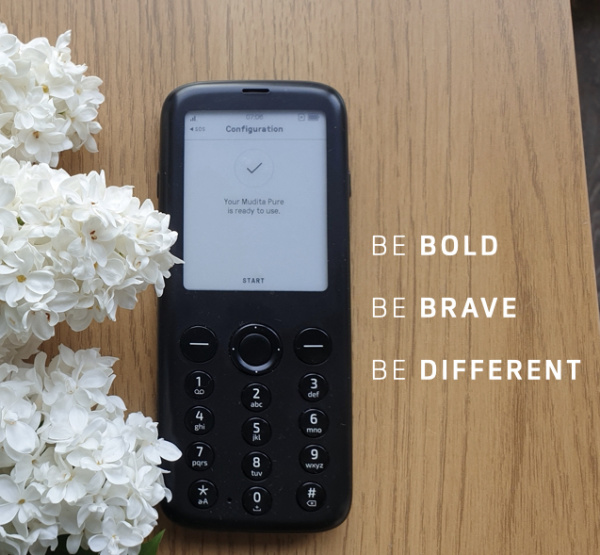
Life without a smartphone
Explore the intriguing world of living without a smartphone.
Today, no one can imagine life without a smartphone. That’s because mobile technology has not only changed our lives, but in some form we have become slaves to it. Many of us can definitely notice the anxiety which may overcome us, when we forget to take our smartphone with us. We have this sense that we are losing contact with reality, resulting in panic.
Sometimes, when we’re not calling, texting, or even waiting for an important call, we are still gripping the phone tightly in our hand, almost like a crutch. Often, the phone absorbs so much of our focus and attention that we forget about others, we forget to connect with those around us - because we are staring at a screen in front of our face.
This brings us to an interesting question: Would you be able to survive a few hours, a day, a week - without a smartphone and the Internet?
These days, many people, especially young people, can't imagine life without a cell phone, or rather without a minicomputer with the Internet - because that's essentially what smartphones are today. Perhaps without smartphones they would not be able to do so many things! For instance, some individuals might think that it is not worth stopping to talk to a stranger, to ask for directions, since a smartphone comes with a GPS application. Why involve another person in our daily life struggles, when a mini computer can assist us in finding our way.

If you’re like me, you might remember the world before mobile phones and the Internet? It's hard to believe that people didn't always have phones in their pockets. That's why pay phones were so important. And even before that, there were telephone operators who would facilitate long-distance and international calls.
These days, it is not uncommon to see the whole family looking at their smartphones instead of talking to each other. Often even on the Christmas table - next to crockery and cutlery - lie the smartphones. Although the phone allows us to communicate quickly and effectively with anyone, anywhere in the world, in a way, it also takes away our ability to have a meaningful conversation. The type of conversation with eye contact and body language. The smartphone is present everywhere, and momentarily turning it off or leaving it at home can feel like part of us is missing.
Even 15 years ago, owning a smartphone was something that wasn’t so common. Even though most people had mobile phones, they were usually not of the “smart” variety. They allowed us to stay in touch, but we still felt connected to the real world. That all changed when the iPhone launched in 2007. Today there are fewer and fewer people who do not use digital technology in some form. There’s no denying that the smartphone changed our life. Those mini supercomputers in our pockets make us feel almost self-sufficient. As if we don’t need anyone else to get things done. However, we must be careful, because excessive and mindless use of these devices can turn into an addiction.

Our smartphones have become such an integral part of our lives that even our sleep is disrupted by them. The blue light emitted by screens can interfere with our natural sleep patterns, making it harder to fall asleep and stay asleep. Additionally, constantly checking our phones before bedtime can cause anxiety and make it even more difficult to wind down. Using your smartphone as an alarm clock can also be problematic, as the temptation to check notifications and social media can make it harder to fall back asleep after being woken up. An offline alarm clock, such as Mudita Bell or Mudita Harmony can help solve these problems by providing a dedicated device for waking up, without the distractions and interruptions of a smartphone.
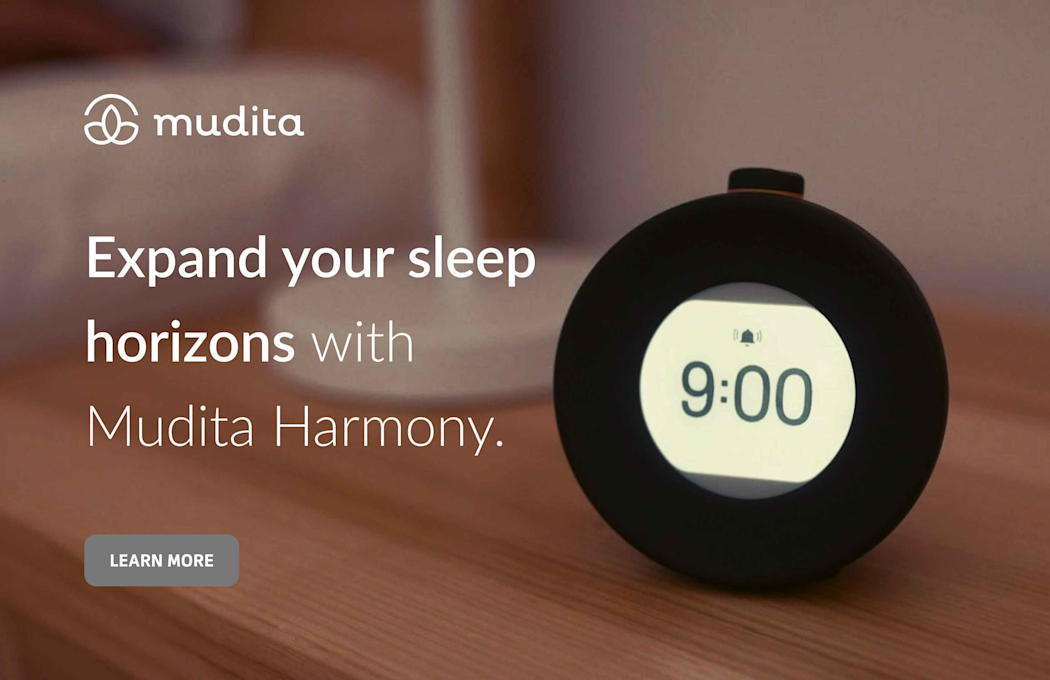
Mudita Harmony2
How many people can actually endure a few days of a "digital detox," and live their life without a smartphone, social media or convenience apps?
Spending time without digital technology allows you to control your tech habits and build a healthy relationship with technology.
Can we take a break from digital technology and limit our screen time?
Do you agree that the smartphone - a phone with internet and a huge variety of additional (sometimes useless) functions - violates our privacy, steals our solitude.... and thus - takes away our own thoughts?
Join the conversation and let us know how you feel about the digitally saturated environment we live in?

Related stories

Simple Rules for Mindful Social Media Use
Check out Mudita's simple, yet transformative guidelines designed to help you navigate the digital landscape with intention, balance, and joy.

Optimizing Sleep: An Exclusive Interview with Mollie Eastman
The art of better sleep with Mollie Eastman & Mudita. Uncover expert insights on optimizing sleep hygiene & embracing Mudita's tech for improved well-being.

Paws and Productivity: The Benefits of Pets in the Workplace
Explore how a pet-friendly workplace can boost employee well-being, increase productivity, enhance collaboration, attract top talent, and benefit pets too.
If you'd like to receive the best stories from our blog, keep up to date with our progress and get notified about our product releases and special discounts.
By providing your name and e-mail you agree to receive marketing content and commercial offers from Mudita Sp. z o.o. with its registered office in Warsaw. Your personal data will be processed according to provisions of Privacy Policy at the same time you accept the Terms & Conditions of Newsletter.

How My Smartphone Transformed My Life
What my research has taught me about improving digital well-being..
Posted February 12, 2022 | Reviewed by Gary Drevitch
- Smartphones can have subtle costs to our well-being when they interfere with in-person social interactions.
- Smartphones can also make us happier, so there's no need to feel guilt or to ditch your smartphone for a flip phone.
- Research has begun to show how we can use our smartphones to further maximize our well-being.

It’s been 10 years since I made a decision that would forever change my life. This decision has altered the way I communicate with others, the way I spend my free time, and what I research. Though I did not know it at the time, my life would change profoundly when I decided to purchase my first smartphone.
It wasn’t long after I acquired my first iPhone that I began to notice that my ability to concentrate on my work diminished. As more and more friends and colleagues ditched their flip phones for these handheld computers, I also began to notice that smartphones distracted people far beyond the work setting. Smartphones competed for our attention when we spent time even with the closest people in our lives. A year after my purchase, I was dancing at a festival when the topic of my Ph.D. dissertation appeared to me with remarkable clarity: I was going to research whether smartphones impact well-being by interfering with our in-person social interactions.
Even since my dance-floor epiphany, my collaborators and I have conducted a slew of experiments showing that smartphones do indeed interfere with people’s ability to reap the benefits of in-person social interactions. We have shown, for example, that friends randomly assigned to have their phones on the table while eating at a café enjoyed the experience less than those sharing a meal with their phones put away. In another study, parents asked to be on their phones while enjoying a science museum with their children found the experience less meaningful than parents asked to limit their phone use. We recently summarized these and other studies in a paper published in Current Directions in Psychological Science.
Based on the body of my published work, you could be forgiven if you thought I believe that smartphones are ruining our lives. Indeed, I have even had friends tell me that they are more self-conscious when they use their phones around me. Rest assured: I neither hate my phone nor do I judge other people’s phone use.
First, as researchers often say, “Research is me-search.” In other words, researchers often study topics that are directly relevant to their own behavior and problems. Indeed, I only study the effects of smartphones because I am as guilty as anybody for using my phone—quite a bit.
Second, I deliberately set out to study whether phones interfere with social interactions. Thus, it is not surprising that most of what I have found documents precisely those negative effects. Still, even though the majority of my research shows the costs of smartphone use, our findings are inconsistent with the thesis that smartphones are ruining our lives. In the café study, for example, all participants enjoyed their meal; people with their phones on the table simply enjoyed the meal slightly less. So, no, phones are not ruining your dinner—unless, of course, you are glued to your phone the entire time, but people typically use their phones in short bursts during social interactions.
I do admit, however, that my research has influenced the way I use my smartphone. You will likely not find me with my phone next to my dinner plate or checking my notifications when somebody is talking to me. I typically have my smartphone on silent, so that I have more control over my attention. And I batch my notifications , so that I can attend to them a few times a day rather than as they come in. But I am not going back to my flip phone anytime soon, either. In fact, I would argue that my smartphone has had a net positive effect on my well-being.
With my smartphone faithfully in my pocket wherever I go, I can save time when ordering my morning coffee, finding the best restaurant, or doing my banking. In fact, in one study, we showed that people were in a better mood when trying to get somewhere with their phones versus without them. But my smartphone has positively impacted my life in far more profound ways. Without my smartphone, I would not have met my husband. Sharing my life with him has been a robust source of happiness .
Our smartphones have transformed our lives in a multitude of ways. I have made it my mission to document the subtle costs of these devices, not because I think smartphones are bad for us, but precisely the opposite: With so much information, entertainment, and connection only a swipe away, smartphones should be making us happier. My goal for this page, therefore, is to share the latest research on phones, so that we can all reap the benefits of these amazing devices while minimizing their costs.
Dwyer, R. J., Kushlev, K., & Dunn, E. W. (2018). Smartphone use undermines enjoyment of face-to-face social interactions. Journal of Experimental Social Psychology, 78, 233–239. https://doi.org/10.1016/j.jesp.2017.10.007
Fitz, N., Kushlev, K., Jagannathan, R., Lewis, T., Paliwal, D., & Ariely, D. (2019). Batching smartphone notifications can improve well-being. Computers in Human Behavior, 101(January), 84–94. https://doi.org/10.1016/j.chb.2019.07.016
Kushlev, K., & Dunn, E. W. (2019). Smartphones distract parents from cultivating feelings of connection when spending time with their children. Journal of Social and Personal Relationships, 36(6), 1619–1639. https://doi.org/10.1177/0265407518769387
Kushlev, K., Dwyer, R., & Dunn, E. W. (2019). The social price of constant connectivity: Smartphones impose subtle costs on well-being. Current Directions in Psychological Science, 28(4), 347–352. https://doi.org/10.1177/0963721419847200
Kushlev, K., Proulx, J. D. E., & Dunn, E. W. (2017). Digitally connected, socially disconnected: The effects of relying on technology rather than other people. Computers in Human Behavior, 76, 68–74. https://doi.org/10.1016/j.chb.2017.07.001

Kostadin Kushlev, Ph.D., is an Assistant Professor at Georgetown University in Washington, DC. Dr. Kushlev studies a broad range of questions related to well-being, from its predictors to its consequences.
- Find a Therapist
- Find a Treatment Center
- Find a Psychiatrist
- Find a Support Group
- Find Teletherapy
- United States
- Brooklyn, NY
- Chicago, IL
- Houston, TX
- Los Angeles, CA
- New York, NY
- Portland, OR
- San Diego, CA
- San Francisco, CA
- Seattle, WA
- Washington, DC
- Asperger's
- Bipolar Disorder
- Chronic Pain
- Eating Disorders
- Passive Aggression
- Personality
- Goal Setting
- Positive Psychology
- Stopping Smoking
- Low Sexual Desire
- Relationships
- Child Development
- Therapy Center NEW
- Diagnosis Dictionary
- Types of Therapy

Understanding what emotional intelligence looks like and the steps needed to improve it could light a path to a more emotionally adept world.
- Coronavirus Disease 2019
- Affective Forecasting
- Neuroscience

Life without phone
- . Update: Jul 16, 2022 9:11 am

Table of Contents
Points to speak for the topic – “Life without a phone”:
- It’s been more than a century since Alexander Graham Bell invented the telephone in 1876. Over the past few decades, phones were made affordable to the common people and now they are the popular form of communication . Instant communication is made possible through phones. We are so dependent on phones that it is difficult to imagine a life without phones .
- Without phones, life would have been the same as a few decades ago, when people used letters to communicate . Or perhaps, a new type of communication tool would have emerged .
- The phone is helping in transforming our societies into inclusive societies . It is quite beneficial for differently-abled people and senior citizens to live independently.
- Not just for communication, but phones are now used for many purposes. They made our lives easier with the advancement of mobile phone technologies. Now, we can order things by phone make payments etc. Without phones, these things would have consumed more time.
- Mobile phones are life-saving in emergencies. Without phones, many lives would have been lost due to the delay in informing.
- People who lived before the era of the phone may be able to cope up with a life without phones because they are already used to it, but the generation which was born after phones have become a common thing can find it difficult to live without phones.
- Due to phones, now many people are preferring virtual lives to focus on maintaining real connections. With this, so many people are feeling lonely. This is causing social anxiety issues too. Without phones, there would have been much more face-to-face interactions .
- The invention of smartphones increased the number of distractions for us. Without phones, our focus will improve .
- Continuous use of phones and 24/7 availability is causing anxiety issues for many. Earlier people used to ask whether they can meet, but now people are expecting 24/7 availability on phones from everyone.
- Even though life without phones feels scary, using letters for normal communication needs is not that bad. It can slow down our communication and hence can reduce conflicts .
- Now digital detox is becoming famous. Pausing phones for a while helps in leading a peaceful life and to understand how to utilize cellphone without getting trapped by them.
Conclusion:
Life without a phone is very difficult in the present times because now we are so dependent on phones for communication. But once in a while, switching off the phone helps us to reclaim our time and to focus on ourselves & our loved ones.
What are your thoughts on life without a phone? Express your point of view through the comment section below. And subscribe to our blog to read answers to the trending GD topics.
Photo by Suzy Hazelwood from Pexels
Copyright @ Group Discussion Ideas.
Want to listen to this instead?
Subscribe to our YouTube channel . We upload videos on GD topics regularly.
Related Posts

Age and Youth: Experience And Young Talent

Child labour in India

Future of the Internet

Should the rich and wealthy in India be taxed more?

- Privacy Overview
- Strictly Necessary Cookies
- 3rd Party Cookies
This website uses cookies so that we can provide you with the best user experience possible. Cookie information is stored in your browser and performs functions such as recognising you when you return to our website and helping our team to understand which sections of the website you find most interesting and useful.
Strictly Necessary Cookie should be enabled at all times so that we can save your preferences for cookie settings.
If you disable this cookie, we will not be able to save your preferences. This means that every time you visit this website you will need to enable or disable cookies again.
This website uses Google Analytics to collect anonymous information such as the number of visitors to the site, and the most popular pages.
Keeping this cookie enabled helps us to improve our website.
Please enable Strictly Necessary Cookies first so that we can save your preferences!
- MBA Admission Predictor
- MBA ROI Calculator
- CAT College Predictor
- MBA Strength Finder
- Program Finder
- Career Calculator

Articles For MBA Students | MBAROI
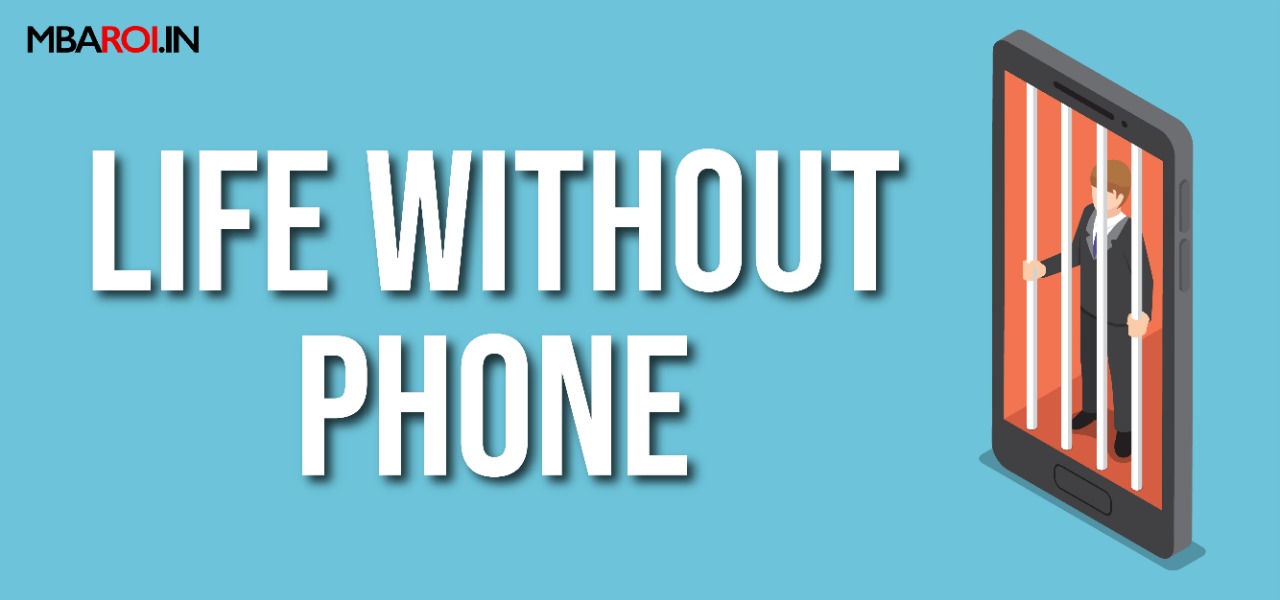
Life Without Phone
“Telephone” the greatest and most useful invention of all time was invented by Graham bell in 1876 . At that time it was only the mode of communication between two people. But technology kept on upgrading itself and so did the functionality of the phones. The old age phones become the new era’s smartphones. And today a smartphone is performing most of our tasks directly and indirectly. Smartphones working is not limited to calling anymore. It became the model of business, education, entertainment , and this dependency on smartphones become a problem. As of now, we cannot imagine our life without the phone.
According to the survey by Psychguides “ Many teenagers feel depressed and panic when their phone is low on battery or misplaced .” Last year in an experiment conducted in China . In that, all the students have to switch off their phones for ½ hour . And most of them feel depressed just after 10 minutes.
MBA Colleges Rankings:- Top MBA Colleges in India | Top 10 MBA Colleges in India | Top MBA Colleges in Delhi
On the other side, the mobile phone is helping people all around the globe. In a tough time of covid-19 , the smartphone makes the lives of people easy. Students are able to take their classes online with the help of phones and many businesses starting and operating with smartphones. If people stop using phones then it will create problems for them. Now read in detail about what will happen if we have life without a cell phone?
Learn About the – Group Discussion | CMAT Exam
Pros of life without a phone.
- Extensive use of mobile can cause problems like anxiety, and depression and impact the thinking level of the user. And if we do not have phones this problem will minimize.
- People will start connecting to each other physically in place of virtually. And this will make their bond stronger.
- Teenagers will not expose the things which are harmful to them.
- People will start living in the reality instead of living in a fake social media world.
- Smartphone addiction is one of the major concerns according to the psych guides and avoiding the frequent use of mobile phones is the only way to do this.
- Phones have become the medium of distractions. If we live a life without phones it will increase the concentration and Patience level of people.
- Life without a phone will reduce the FOMO (Fear of Missing Out) in people.
Also Read :- Impact of Social Media on Youth and Technology Addiction
Cons of life without smartphone.
- Most of our task is totally reliable on the phone and in that scenario if the use of the phone stops it will create a huge amount of problems for us.
- Phones are helping in the evolution of society and along with the phone people also becoming smart.
- Terms like online education or work from home are gaining so much popularity because of the phones. We know the fact these things will remain in the market no matter phone is there or not. But without smartphones, they will not able to reach us easily. Read More about Working from home vs work from office .
- The functionality of Many businesses like – Google, Amazon, Zomato, Paytm, Byjus, and many more are mostly dependent on phones. If phones are banned then these companies have shut their operation and millions of people will lose their jobs.
- During a medical emergency phones become the life savior many times. Specifically in the time of the Covid- 19-second wave when the whole of India is suffering from the oxygen supply. At that many people and groups share information about oxygen and bed availability which help and save the lives of many peoples. Suppose we do not have a phone at that time then we have to face tough situations.
- Life without a mobile phone will disconnect us from our loved ones who live far from us.
We all have to accept the fact that phones are one of the greatest things invented by humans. But the other side of the story is also true that phone is causing some real problems for us and society. As mentioned above there are many advantages and disadvantages of life without a phone but it is also the fact that we cannot imagine our lives without phones. It is just we need to learn the uses of phones for improving our knowledge and productivity. Because there are many examples of how a phone can change our lives positively.
Addiction is the main concern with phones and not only phones addiction to anything is harmful. In the past few years, the addiction to phones has increased and all the smartphone companies are working in direction of making people addicted to phones. We need to reduce our dependency on phones so we can avoid the habit of using mobiles. The conclusion of the whole discussion is we can’t live a life without a phone but we need to reduce its uses of it.
Check the other:- Group Discussion Topics
Also, Read Other Popular Article
- Top MBA Colleges accepting MAT Score
- Top MBA Colleges in Pune
- IIM Placements 2022
- IIM CAT Cut off
You may also like...

Cryptocurrency as an Investment Option

Impact of Technology on Jobs
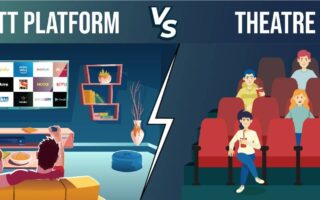
OTT vs Theatre
Login to mbaroi.

Enquire Now

Short Essay on Life Without Technology [100, 200, 400 Words] With PDF
In today’s session, you will learn to write short essays on the topic of Life Without Technology. There will be three sets of essays covering different word limits.

Short Essay on Life Without Technology in 100 Words
Today, technology has become an important part of our daily lives. Mobile phones, tablets and computers have made connecting with people around the world an easy task. We can send and receive pictures, videos and documents over the internet. Technologically advanced machines like automatic washing machines, dishwashers, cleaning robots, smart televisions and various smart appliances have made life very comfortable for people.
However, these appliances have also made people lazy. People today have lost the connection with nature, with real people, with their friends and families. They hardly need to do their day-to-day work by themselves and have become physically unfit. Life without technology seems impossible today, but one must make sure to strike a balance between depending on technology and doing their work themselves.
Short Essay on Life Without Technology in 200 Words
There is no doubt that technology has made life easier for people. A hundred years ago, people wouldn’t have imagined that today, we will have so many gadgets to help us with our daily life.
Today, mobile phones, tablets and computers have made connecting with people around the world an easy task. We can send and receive pictures, videos and documents over the internet. Technologically advanced machines like automatic washing machines, dishwashers, cleaning robots, smart televisions and various smart appliances have made life very comfortable for people. Even students are now dependent on online platforms to learn and understand their subjects better. If we want to travel, we do not use physical maps anymore but depend on GPS.
However, these appliances and applications have also made people lazy. People today have lost the connection with nature, with real people, with their friends and families. They hardly need to do their day-to-day work by themselves and have become physically unfit. If someone loses their mobile phone, it feels as if they have lost an organ. Life without technology seems impossible today, but one must make sure to strike a balance between depending on technology and doing their work themselves. Only then, technology will prove to be a boon and not a bane for us.
Short Essay on Life Without Technology in 400 Words
Today, technology has changed the way we conduct our lives and it is hard to imagine getting through the day without help from one or the other type of gadget.
Today, mobile phones, tablets and computers have made connecting with people around the world an easy task. We can send and receive pictures, videos and documents over the internet. Technologically advanced machines like automatic washing machines, dishwashers, cleaning robots, smart televisions and various smart appliances have made life very comfortable for people.
Even students are now dependent on online platforms to learn and understand their subjects better. For their research and assignments, they need the help of the internet. If we want to travel, we do not use physical maps anymore but depend on GPS. One needs so many gadgets in the office like desktops, printers, xerox machines, fax machines, et cetera. Even in the kitchen, one needs mixer-grinders, food processors, microwave ovens and refrigerators. If we want to go somewhere and need to book train, bus or flight tickets for the same, we still use the internet.
However, these gadgets, appliances and applications have also made people lazy. People today have lost the connection with nature, with real people, with their friends and families. They are always glued to their phone screens, happy in their virtual world and dislike going out. They hardly need to do their day-to-day work by themselves and have become physically unfit. If one wants some information, instead of thoroughly reading about it and understanding the topic completely, they can just search on the internet and get a short, concise answer.
All this has slowed down our brains and made us lose our creativity. Our lives have become entirely dependent on technology and gadgets. One cannot survive without mobile phones today. Be it an office employee or a school student, everyone needs a phone to stay connected with their family, friends, work and school. If someone loses their mobile phone, it feels as if they have lost an organ.
A hundred years ago, people wouldn’t have imagined that today, we will have so many gadgets to help us with our daily life. Life without technology seems impossible today, but one must make sure to strike a balance between depending on technology and doing their work themselves. Only when things are well-balanced, technology will prove to be a boon and not a bane for us. Otherwise, it wouldn’t take long for us to lose ourselves in gadgets and the virtual world and destroy our health and peace of mind.
In today’s session, I have written these sample essays with a very simplistic approach for a better understanding of all kinds of students. If you still have any doubts regarding this topic, kindly, keep me informed through some quick comments. I’ll try to answer all your queries to the best of my ability. To read more such essays on various other important topics, keep browsing our website.
Thank you for being with us. Have a great day.
More from English Compositions
- Write a Letter to the Editor about Excessive Use of Mobile Phones
- 100, 200, 400 Words Paragraph and Short Essay [With PDF]
- Write a Letter to Your Brother Telling Him the Harmful Effects of mobile phones [With PDF]
- Short Essay on Mobile Phone [100, 200, 400 Words] With PDF
- Short Essay on Advantages and Disadvantages of the Internet [100, 200, 400 Words] With PDF
- Short Essay on Advantages and Disadvantages of Computer [100, 200, 400 Words] With PDF
- Short Essay on the Importance of Science in Our Daily Life [100, 200, 400 Words] With PDF
- Write a Letter to the Dealer Complaining about the Defective Washing Machine
- Write a Letter to the Editor about Misuse of Internet
- Madhyamik English Writing Suggestion 2022 [With PDF]
- Write a Letter to the Editor about Cybercrime
- Write a Letter to the Editor on Role of Science and Technology
Concerns for 4G phones without VoLTE, regional customers as Australia's 3G shutdowns continue
Queensland IT worker Serge didn't think his 4G phone would be impacted by the gradual shutdown of Australia's 3G networks — until one day when his device suddenly couldn't make or receive calls.
"I was sort of in a bit of a panic," he said. "I'm pulling my hair out. I'm connected to 4G. Everything seems to be working. Why can't I make phone calls?"
Serge said he was warned by his provider to upgrade his phone before telecommunications giant TPG (which now owns Vodafone) shut down its 3G network — but he ignored the warnings, believing his 4G device would not be affected.
More Australians like Serge are likely to be caught out by further 3G shutdowns this year, with millions of Telstra and Optus customers (as well as those using smaller providers on those two networks) to lose 3G coverage in the coming months.
The shutdowns are also causing concern for some people living and working in regional and rural areas.
When are Australia's 3G networks shutting down?
TPG , which merged with Vodafone in 2020, gradually shut down its 3G network between December 2023 and January 2024, impacting its mobile customers as well as smaller providers that use its network, such as Kogan, Lebrara, Internode, iiNet and Felix.
The next major provider to close its 3G network is the country's largest telecommunications company, Telstra , which will switch off 3G on June 30, 2024. This will impact smaller providers on the Telstra network such as ALDI Mobile, Belong, Boost, Exetel, Tangerine and Woolworths Mobile.
Lastly, Optus plans to shut down its 3G service in September 2024, impacting smaller providers including amaysim, Aussie Broadband, Coles Mobile, Dodo, iPrimus and Moose Mobile.
All three major telcos have been warning customers to make sure they upgrade from 3G-only devices, but also to check if their 4G and 5G devices have something called Voice over LTE (VoLTE), so that they don't get caught out when 3G networks shut down.
So what is VoLTE?
VoLTE (short for voice over long term evolution) is what most modern phones use to send voice calls over the same 4G and 5G channels that also carry other mobile data.
Essentially, VoLTE allows 4G and 5G phones to usually have better call quality, faster connection times, and the ability to use voice and data at the same time.
After doing some research, Serge said he discovered his Android phone did have VoLTE capability, but the toggle to enable it was in a hidden menu he could only access by putting a specific code into his phone's dialler.
Serge said he also checked the phones of some family members and found some of their devices also didn't have VoLTE enabled by default, which caused issues when their 3G network disappeared.
How do I check if my phone has VoLTE?
Mark Gregory from the School of Engineering at RMIT University said it was "generally not normal" for someone to need to find a hidden menu to enable VoLTE, and you could usually find it in your phone's network settings.
He said if customers were unsure whether their device had VoLTE or if it needed to be manually enabled, they could check with their carrier or their phone's user manual.
The Australian Mobile Telecommunications Association (AMTA), which represents Australia's mobile telecommunications industry, said 3G-only phones and some older 4G phones that don't have VoLTE capabilities would be impacted by 3G network shutdowns.
Mr Gregory said while many of the phones likely to be affected were older devices, some of them were very popular.
"These are not just small brands, these are some of the larger brands such as Apple and Samsung, so people need to check," he said.
The AMTA said people should also check if their devices support VoLTE Emergency Calling, as "a very small proportion of 4G phones that support voice calls over 4G (VoLTE) do not support voice calls to emergency services over 4G and it is highly recommended that these be replaced".
"Devices that are not able to be used to make emergency calls are really no longer fit for purpose," Mr Gregory said.
Concerns over 3G in regional areas
The major telcos say their 3G networks will be repurposed to expand the reach of their 4G and 5G networks. But that will take time, which is concerning for some customers in regional areas.
The AMTA did not provide a time frame for those network upgrades when contacted by ABC News, but it said telcos had "committed to equivalent, or better, coverage with 4G, or 5G, in advance of closing 3G".
Mr Gregory said there were going to be "a lot of people affected" when Telstra turned off its 3G services at the end of June — even though they might have appropriate 4G and 5G devices — because 4G and 5G networks don't usually reach as far.
Some farmers have already reported significant drops in 3G service .
Mr Gregory said the telcos were not required to ensure their customers did not lose service as they upgraded their infrastructure to 4G and 5G systems, which he said was unfortunate.
"There's nothing to stop that from happening, other than the customer has the option to complain to the ombudsman, and I strongly recommend that people do that because I'm already hearing that this is happening in some places," he said.
However, Telecommunications Industry Ombudsman Cynthia Gebert said telcos were not required by law to continue to offer 3G services, which is why her office could not refer complaints it received about the decision to shut down 3G networks to any regulator.
The ombudsman's office said it would "not be able to handle complaints about having no coverage as a result of the shutdown, requests for the 3G network to stay connected, or handsets and devices that are no longer working and were not supplied as part of a current contract".
Ms Gebert told ABC News that her office might be able to help with problems such as "how the transition from 3G services is being managed by a telco, detriment that has occurred because of not being notified of the network closure, contractual disputes, or paying for a service that cannot be used".
She has previously called for greater government regulation of the telecommunications industry.
Mr Gregory from RMIT said people in the regions who were likely to be impacted might consider switching telcos, trying a signal booster, or using a satellite communications provider.
'It doesn't need to be this hard'
Angus Witherby lives in the northern New South Wales town of Moree, which has a population of around 7,000 people.
He said he had not had consistent mobile coverage in the nine years he has lived there, and he is concerned about the closure of 3G networks because he relies on them for his work travelling through the regions as a town planning consultant.
"In terms of being on the road and in terms of being in smaller communities, I will have a significant loss of coverage," he said.
Mr Witherby said he might need to purchase a satellite internet solution, which would cost him thousands of dollars.
"In the last three weeks I've [punctured] three tyres on our lovely rural roads around here … Welcome to regional Australia," he said.
"Now, if I lose that fortuitous 3G coverage, unless I'm willing to fork the money for a [satellite] solution, how do I get help when I'm maybe 10 kilometres from the nearest dwelling? What do I do if I haven't seen a car for three hours?"
Mr Witherby believes the telcos "don't care" about people in the regions, and he wants the government to ensure affordable internet access for every citizen, especially "in an era where government expects every citizen to interact with them over the internet".
"This is critical hardware to underpin the functioning of our society, both socially and economically," he said.
"It doesn't need to be this hard, where we are continually fighting against a diminution of service availability in the bush."
What's more, a 2023 report by the Australian Competition and Consumer Commission (ACCC) found that many remote Indigenous communities were still relying on 3G networks, and already had poor or no coverage.
Are the telcos doing enough to prepare us?
Serge believes telecommunications companies need to better explain to customers how 3G shutdowns might affect them.
"With my case, they just said they were switching off 3G and I would not be able to make a phone call. Well, that's not entirely the whole story," he said.
"They should have explained it and said, 'Well, even if you have 4G, you might not have VoLTE, or not have it enabled.'"
Serge is worried other Australians will be caught out as more 3G networks are shut down later this year.
"[The telcos] need to have a different strategy because you will have at least two more waves of people panicking, and going out and buying new phones," he said.
The AMTA said telcos and the wider industry had been "preparing customers for the network closure by providing clear and consistent communications for over two years".
Mr Gregory from RMIT said the major telcos had been communicating the change with customers "reasonably well", but smaller providers — also known as Mobile Virtual Network Operators, or MVNOs — appeared to be less proactive.
"The problem is that when you get the changeover of people moving from one vendor to another, and also with the smaller companies that people are utilising, that there may not be as much information being made available," he said.
"The smaller tiers — the companies that are utilising the Telstra, Optus and Vodafone networks — may not be providing as much information as those big companies. So really it's very important that everyone takes some time to look at the website of the network they're using."
The AMTA said the major telcos were working with their MVNOs "to ensure they are sharing consistent, clear information with their customers as we transition off the 3G networks".
- X (formerly Twitter)
Related Stories
Farmers still rely on 3g to run some equipment, they say it's dropping out ahead of schedule.
EFTPOS machines, medical devices, older mobile phones could be useless when 3G switched off
Australia's 3G network shutdown begins this Friday. Here's what you need to know
- Mobile Phones
- Mobile and Internet Access
- Science and Technology
- Telecommunications Services Industry
What to know about the crisis of violence, politics and hunger engulfing Haiti

A long-simmering crisis over Haiti’s ability to govern itself, particularly after a series of natural disasters and an increasingly dire humanitarian emergency, has come to a head in the Caribbean nation, as its de facto president remains stranded in Puerto Rico and its people starve and live in fear of rampant violence.
The chaos engulfing the country has been bubbling for more than a year, only for it to spill over on the global stage on Monday night, as Haiti’s unpopular prime minister, Ariel Henry, agreed to resign once a transitional government is brokered by other Caribbean nations and parties, including the U.S.
But the very idea of a transitional government brokered not by Haitians but by outsiders is one of the main reasons Haiti, a nation of 11 million, is on the brink, according to humanitarian workers and residents who have called for Haitian-led solutions.
“What we’re seeing in Haiti has been building since the 2010 earthquake,” said Greg Beckett, an associate professor of anthropology at Western University in Canada.

What is happening in Haiti and why?
In the power vacuum that followed the assassination of democratically elected President Jovenel Moïse in 2021, Henry, who was prime minister under Moïse, assumed power, with the support of several nations, including the U.S.
When Haiti failed to hold elections multiple times — Henry said it was due to logistical problems or violence — protests rang out against him. By the time Henry announced last year that elections would be postponed again, to 2025, armed groups that were already active in Port-au-Prince, the capital, dialed up the violence.
Even before Moïse’s assassination, these militias and armed groups existed alongside politicians who used them to do their bidding, including everything from intimidating the opposition to collecting votes . With the dwindling of the country’s elected officials, though, many of these rebel forces have engaged in excessively violent acts, and have taken control of at least 80% of the capital, according to a United Nations estimate.
Those groups, which include paramilitary and former police officers who pose as community leaders, have been responsible for the increase in killings, kidnappings and rapes since Moïse’s death, according to the Uppsala Conflict Data Program at Uppsala University in Sweden. According to a report from the U.N . released in January, more than 8,400 people were killed, injured or kidnapped in 2023, an increase of 122% increase from 2022.
“January and February have been the most violent months in the recent crisis, with thousands of people killed, or injured, or raped,” Beckett said.

Armed groups who had been calling for Henry’s resignation have already attacked airports, police stations, sea ports, the Central Bank and the country’s national soccer stadium. The situation reached critical mass earlier this month when the country’s two main prisons were raided , leading to the escape of about 4,000 prisoners. The beleaguered government called a 72-hour state of emergency, including a night-time curfew — but its authority had evaporated by then.
Aside from human-made catastrophes, Haiti still has not fully recovered from the devastating earthquake in 2010 that killed about 220,000 people and left 1.5 million homeless, many of them living in poorly built and exposed housing. More earthquakes, hurricanes and floods have followed, exacerbating efforts to rebuild infrastructure and a sense of national unity.
Since the earthquake, “there have been groups in Haiti trying to control that reconstruction process and the funding, the billions of dollars coming into the country to rebuild it,” said Beckett, who specializes in the Caribbean, particularly Haiti.
Beckett said that control initially came from politicians and subsequently from armed groups supported by those politicians. Political “parties that controlled the government used the government for corruption to steal that money. We’re seeing the fallout from that.”

Many armed groups have formed in recent years claiming to be community groups carrying out essential work in underprivileged neighborhoods, but they have instead been accused of violence, even murder . One of the two main groups, G-9, is led by a former elite police officer, Jimmy Chérizier — also known as “Barbecue” — who has become the public face of the unrest and claimed credit for various attacks on public institutions. He has openly called for Henry to step down and called his campaign an “armed revolution.”
But caught in the crossfire are the residents of Haiti. In just one week, 15,000 people have been displaced from Port-au-Prince, according to a U.N. estimate. But people have been trying to flee the capital for well over a year, with one woman telling NBC News that she is currently hiding in a church with her three children and another family with eight children. The U.N. said about 160,000 people have left Port-au-Prince because of the swell of violence in the last several months.
Deep poverty and famine are also a serious danger. Gangs have cut off access to the country’s largest port, Autorité Portuaire Nationale, and food could soon become scarce.
Haiti's uncertain future
A new transitional government may dismay the Haitians and their supporters who call for Haitian-led solutions to the crisis.
But the creation of such a government would come after years of democratic disruption and the crumbling of Haiti’s political leadership. The country hasn’t held an election in eight years.
Haitian advocates and scholars like Jemima Pierre, a professor at the University of British Columbia, Vancouver, say foreign intervention, including from the U.S., is partially to blame for Haiti’s turmoil. The U.S. has routinely sent thousands of troops to Haiti , intervened in its government and supported unpopular leaders like Henry.
“What you have over the last 20 years is the consistent dismantling of the Haitian state,” Pierre said. “What intervention means for Haiti, what it has always meant, is death and destruction.”

In fact, the country’s situation was so dire that Henry was forced to travel abroad in the hope of securing a U.N. peacekeeping deal. He went to Kenya, which agreed to send 1,000 troops to coordinate an East African and U.N.-backed alliance to help restore order in Haiti, but the plan is now on hold . Kenya agreed last October to send a U.N.-sanctioned security force to Haiti, but Kenya’s courts decided it was unconstitutional. The result has been Haiti fending for itself.
“A force like Kenya, they don’t speak Kreyòl, they don’t speak French,” Pierre said. “The Kenyan police are known for human rights abuses . So what does it tell us as Haitians that the only thing that you see that we deserve are not schools, not reparations for the cholera the U.N. brought , but more military with the mandate to use all kinds of force on our population? That is unacceptable.”
Henry was forced to announce his planned resignation from Puerto Rico, as threats of violence — and armed groups taking over the airports — have prevented him from returning to his country.

Now that Henry is to stand down, it is far from clear what the armed groups will do or demand next, aside from the right to govern.
“It’s the Haitian people who know what they’re going through. It’s the Haitian people who are going to take destiny into their own hands. Haitian people will choose who will govern them,” Chérizier said recently, according to The Associated Press .
Haitians and their supporters have put forth their own solutions over the years, holding that foreign intervention routinely ignores the voices and desires of Haitians.
In 2021, both Haitian and non-Haitian church leaders, women’s rights groups, lawyers, humanitarian workers, the Voodoo Sector and more created the Commission to Search for a Haitian Solution to the Crisis . The commission has proposed the “ Montana Accord ,” outlining a two-year interim government with oversight committees tasked with restoring order, eradicating corruption and establishing fair elections.
For more from NBC BLK, sign up for our weekly newsletter .
CORRECTION (March 15, 2024, 9:58 a.m. ET): An earlier version of this article misstated which university Jemima Pierre is affiliated with. She is a professor at the University of British Columbia, Vancouver, not the University of California, Los Angeles, (or Columbia University, as an earlier correction misstated).
Patrick Smith is a London-based editor and reporter for NBC News Digital.
Char Adams is a reporter for NBC BLK who writes about race.
Android Police
Motorola moto g play (2024) review: getting back into the budget groove.
Motorola regains its footing after last year's budget blunder
Finding a good quality phone for under $200 can be difficult. As with any budget device, there are bound to be compromises to reach the desired price point. While that fact will never be one that can be ignored, as the buyer, you have to decide which choices you are willing to live with. With the new Motorola Moto G Play (2024), the company made the necessary cuts to reach the $150 price tag the device carries. But those choices are far better this round than last year's variant. So much so that I can actually recommend the new Moto G Play (2024) for those on a tight budget — assuming you can accept what the phone offers.
Moto G Play (2024)
With a price tag of $150, you wouldn't expect much from the Moto G Play 2024, but you might be surprised. Its 6.5-inch display has a respectable 90Hz refresh rate, and it's clad in Gorilla Glass for better fall protection. A Snapdragon 680 processor and 4GB of RAM should make for a respectable performance experience, and Motorola's clean software should also help on that front. It's a solid option for people with a restrictive budget.
- Responsive Snapdragon processor
- Solid battery life
- Dependable camera performance
- 90Hz display
- Can't handle intensive gaming
- Display doesn't handle bright environments well
Pricing and availability
Easy to find and easy on the wallet.
The Motorola Moto G Play (2024) was announced on January 16, 2024, and became available on February 8, 2024. The phone is available in a single color option, which Motorola calls Sapphire Blue, and a single specification of 4GB RAM and 64GB internal storage. Regarding where you can purchase the phone, that can be done for $150 through Amazon, Best Buy, or Motorola.
Specifications
Design and hardware, simple yet meaningful changes.
For the better part of the last decade, Motorola has been a leader among the best budget Android smartphones with its G line of devices. Because of this lineage, I was surprised at how poorly the Moto G Play (2023) performed when I reviewed it for XDA Developers last year. Due to this less-than-stellar showing, I didn't have high hopes for this year's model. However, Motorola made meaningful choices about improving the device, starting with the design.
The Moto G Play (2024) takes some design cues from the well-received Motorola Edge+ (2023), and though that design isn't anything extraordinary, it is better than its budget-minded sibling. Motorola molded the camera housing into the back of the phone for a more seamless look and moved the capacitive fingerprint reader to the power button on the side rather than in the "M" logo on the back. The phone is also more squared-off than the previous model with flat sides.
Moto Edge+ (2023) review: It's time to take Motorola seriously again
Moto uses the same 6.5-inch HD+ LCD panel with a 90Hz refresh rate for the front of the phone. Unfortunately, the display tops out at only 500 nits of brightness and struggles mightily in bright environments. However, the bump in expandable storage to 64GB and RAM up to 4GB, supporting the Qualcomm Snapdragon 680 4G, makes everything on the phone much smoother. These internal specs really hampered the Moto G Play (2023), as it only had 3GB RAM and ran a less powerful MediaTek Helio G37 processor that caused the phone to stutter no matter what you tried to do on it.
As you may have noticed, the processor is named Qualcomm Snapdragon 680 4G. So, that means you won't have 5G support with Moto G Play (2024), and though that might be a bummer to some, at $150, it shouldn't be too surprising. I am a bit surprised to see dual stereo speakers with Dolby Atmos support in the device. The speakers do sound pretty decent but will distort at higher volumes. When you don't want to listen out loud, there is a 3.5mm audio jack and Bluetooth 5.1 for connecting any number of excellent headphones or earbuds .
Battery life and performance
Battery beast and puppy-like performance.
The Qualcomm Snapdragon 680 4G handles daily phone use pretty well. Swiping between pages on the homescreen, opening the app drawer, and switching apps for multitasking all work relatively smoothly. There can be a small stutter occasionally, partially depending on what else is going on in the phone's background, but the general performance is significantly better than that of the 2023 model.
I was able to use all my favorite apps, from reading the news to social media apps, just fine. The Moto G Play (2024) also handles light gaming well. While you shouldn't expect to run the best Android games on this device, less power-intensive games like the ever-popular Stack Bounce will have no issues. Some load times for launching an app from scratch could get a bit long compared to using one of the top Android phones , but that small addition in wait time comes at a heavy discount.
Keeping the lights on for the Motorola Moto G Play (2024) is a 5000mAh battery. I had no problems going to bed with at least 40% of the battery left with normal usage. This is partly achieved by the less power-hungry HD+ display and the Qualcomm Snapdragon 680 4G not jumping between 5G and 4G towers. Recharging the phone is a slight bummer as it only supports 15W of wired charging. While this is better than the 10W from the 2023 model, you'll still want to leave plenty of time to get the phone charged back to full.
Nothing special, and that's OK
Next to the change in processor, the biggest improvement comes to the camera. Now, keep in mind this is a $150 phone and isn't going to compete with the best camera phones , but compared to last year — it's fantastic. In 2023, Motorola went with a 16MP main sensor, a 2MP depth sensor, and a 2MP macro lens. The primary camera was OK, but the other two sensors were less so. For the Moto G Play (2024), Motorola chose a single 50MP f/1.8 sensor with Motorola's Quad Pixel technology, which is better than all three cameras from last year's model put together.
Not only did Motorola include a better camera on the Moto G Play (2024), but the phone also benefits from a better ISP from the Qualcomm processor and more shooting modes from the manufacturer. Along with basic photo, video, and portrait modes, the phone finally has Night Mode, Spot Color, Dual Capture, and more. Zoom is capped at 8x digitally, and the post-processing does a decent job of making the photo usable in most instances.
Here are some photo samples from the Moto G Play (2024):
Here are some zoom photo samples from the Moto G Play (2024):
Here are some low-light photo samples from the Moto G Play (2024):
As for the front-facing camera, the Moto G Play (2024) also gets a bump, going from a 5MP option in the previous model to an 8MP f/2.0 sensor. It does miss out on any autofocus feature, but the selfie camera does a serviceable job of taking photos.
Competition
Pick your compromise.
As you might have guessed, picking a smartphone in the sub-$200 phone category will require some acceptance that it really comes down to which compromises you are willing to make to hit that budget. The Moto G Play (2024) is a big improvement over last year's model, but for some, Motorola just might not be their preferred flavor of phone, or there are features you desire that aren't a strong point for the Moto phone.
Perhaps you want a smartphone with a 120Hz display that's slightly bigger at 6.72 inches and offers more performance power. You may want to consider the OnePlus Nord N30 5G. In our review, we found that the phone had some regression over its predecessor, but when comparing it to the Moto G Play (2024), it has some qualities you may prefer. The 8GB RAM and 128GB of base storage paired with the Qualcomm Snapdragon 695 5G offers improved performance over Motorola's offering and an improved display.
You could also look at something like the previously mentioned Samsung Galaxy A14, which, like the Nord N30 5G, will cost you about $50 more than the Moto G Play (2024). It is more in line with the specs for Motorola's phone than the option from OnePlus, but it could offer a better software experience for those who prefer more options on the software front. If you are really pinching for pennies, you could go for the entry-level smartphone in the Samsung Galaxy A04. But you are going to be making compromises all around to get a phone that is under $150.
Should you buy the Motorola Moto G Play (2024)?
For $150, it checks a lot of boxes..
If you stack this phone up against more expensive devices, and I'm not even talking $1000 phones, but some as much as $325, like the Samsung Galaxy A54 5G , you'll get a more powerful and complete smartphone experience. But for $150 and even looking at $200, it's a pretty solid device. Motorola made the right concessions in building a budget smartphone and learned from its mistakes in the 2023 variant. For someone on a tight budget or looking for a first phone for their kid, the Motorola Moto G Play (2024) can fit that bill.
The phone isn't going to win any performance battles or wow everyone with its photography prowess. But it has great battery life, runs mostly stutter-free, and has a very serviceable camera. Pair those features with Motorola's clean version of Android 13, and you end up with a reliable smartphone for less than a weekly trip to the grocery store.

IMAGES
VIDEO
COMMENTS
How to Live Without Cell Phones. While cell phones have become an integral part of modern life, it is still possible to envision a life without cell phones. As has been noted, the greatest merit of cell phones is its ability to enable people to make plans. People can still live without cell phones by making plans in advance and sticking to them.
250 Words Essay on Life Without Mobile Phone Introduction. Life without a mobile phone, in today's digital era, seems like an unimaginable scenario. However, there was a time when communication was not as instant and accessible as it is today. This essay explores the implications of a life devoid of mobile phones. Communication in a Mobile ...
Life Without Cell Phones: An Essay. Topics: Cell Phones Effects of Technology Perspective. Words: 629. Page: 1. This essay sample was donated by a student to help the academic community. Papers provided by EduBirdie writers usually outdo students' samples.
The clock on my flip-phone tells me if I've walked for an hour. I don't need to know how many steps I've walked. I have an alarm clock on my night table. I hail taxis; there's no Uber or ...
E arlier this year, Angelo Profera's smartphone gave up the ghost. Like many 21-year-olds, he'd been using it a lot: messaging friends, scrolling social media and taking care of personal admin ...
Without their phones, most of my students initially felt lost, disoriented, frustrated, and even frightened. That seemed to support the industry narrative: look how disconnected and lonely you ...
Save. The average American spends $14,000 per decade on smartphones. That's $70,000 over the course of an average working life. Invested in a conservative mutual fund with an annual rate of ...
To the Editor: According to the statistic cited in Paul Greenberg's " In Search of Lost Screen Time " (Op-Ed, Jan. 1), I am among the under 25 percent of Americans who don't own or use a ...
In the U.S., 40% of consumers worry that they overuse their phones — 60% of those between age 18 and 34 —while 63% seek to cut down on phone time. Apple's Tim Cook banned his nephew from ...
Benefits of living without a smartphone. The first thing that comes to mind when thinking about the benefits of living without smartphones is having more time for family and friends. You can spend more time outdoors, enjoying nature or taking a walk in your neighborhood. Instead of being glued to your phone, you can engage with others around you.
In recent years, smartphones are one of the most important parts of our life. Imaging a world without smartphones is impossible. Most of the people have more than one smartphone and %64 of the people have smartphone in US. Today, our communication is really depends on smartphones while they changed the way of communication.
Use Alternative Devices: If completely eliminating a smartphone is not feasible, consider using alternative devices to fulfill essential tasks. For example, use a computer or tablet for internet browsing, email, and other necessary online activities, while keeping a basic mobile phone for communication purposes only.
In contemporary society, many people, particularly those under the age of 30, rely on their smartphones for a variety of important activities, including waking up in the morning, listening to music, following the news, finding bus schedules, and communicating with friends and family. A 2015 survey by the Pew Research Center found that 15% of ...
Students are often asked to write an essay on Life Without Electronics in their schools and colleges. And if you're also looking for the same, we have created 100-word, 250-word, and 500-word essays on the topic. ... Without phones or the internet, we would have to send letters or meet in person. This could make us feel more connected, as we ...
Walsh, S, White, K, & McD Young, R 2010, 'Needing to connect: The effect of self and others on young people's involvement with their mobile phones', Australian Journal Of Psychology, vol. 62, no. 4, pp. 194-203. This argumentative essay, "You Cannot Live Without Mobile Phones" is published exclusively on IvyPanda's free essay examples ...
Life Without Mobile Phones Essay is also available in different languages. In this Life Without Mobile Phones Essay, the following features are explained in the given manner. Historical Background On Mobile Phones. The early development of mobile phones can be traced back to the 1940s, when mobile radio communication devices were first ...
500 Words Essay on Life Without Technology Introduction. Imagine a world where there are no computers, no smartphones, no cars, no electricity, not even a simple thing like a light bulb. This is what life would be like without technology. It would be a life that is very different from what we know today.
1014 Words5 Pages. One Day without Smartphone "Smartphones, smartphones, smartphones. On public transport is busy replying to chat via smartphone. In the shopping center busy checking app notifications via smartphone. The restaurant is busy commenting on other people's posts through smartpone. Male or female, old or young, alone or in groups ...
An offline alarm clock, such as Mudita Bell or Mudita Harmony can help solve these problems by providing a dedicated device for waking up, without the distractions and interruptions of a smartphone. Mudita Harmony2. How many people can actually endure a few days of a "digital detox," and live their life without a smartphone, social media or ...
Smartphones can also make us happier, so there's no need to feel guilt or to ditch your smartphone for a flip phone. Research has begun to show how we can use our smartphones to further maximize ...
Without phones, there would have been much more face-to-face interactions. The invention of smartphones increased the number of distractions for us. Without phones, our focus will improve. Continuous use of phones and 24/7 availability is causing anxiety issues for many. Earlier people used to ask whether they can meet, but now people are ...
It's hard to believe sometimes that smartphones and social media haven't been around forever — but for one generation, they have. Gen Z doesn't know a time when they weren't ubiquitous.
Smartphone addiction is one of the major concerns according to the psych guides and avoiding the frequent use of mobile phones is the only way to do this. Phones have become the medium of distractions. If we live a life without phones it will increase the concentration and Patience level of people. Life without a phone will reduce the FOMO ...
Advertisement In today's session, you will learn to write short essays on the topic of Life Without Technology. There will be three sets of essays covering different word limits. Short Essay on Life Without Technology in 100 Words Today, technology has become an important part of our daily lives. Mobile phones, tablets and computers have… Read More »
Don't give your kid a smartphone before high school, and don't let them use social media before age 16, New York University social psychologist Jonathan Haidt argues in a new book.. Why it matters: The shift from "play-based" to "phone-based" childhoods is making our kids sick and miserable, Haidt argues. Driving the news: In "The Anxious Generation: How the Great Rewiring of Childhood Is ...
Queensland IT worker Serge didn't think his 4G phone would be impacted by the gradual shutdown of Australia's 3G networks — until one day when his device suddenly couldn't make or receive calls ...
Chaos has gutted Port-au-Prince and Haiti's government, a crisis brought on by decades of political disruption, a series of natural disasters and a power vacuum left by the president's assassination.
Pricing and availability Easy to find and easy on the wallet. The Motorola Moto G Play (2024) was announced on January 16, 2024, and became available on February 8, 2024.